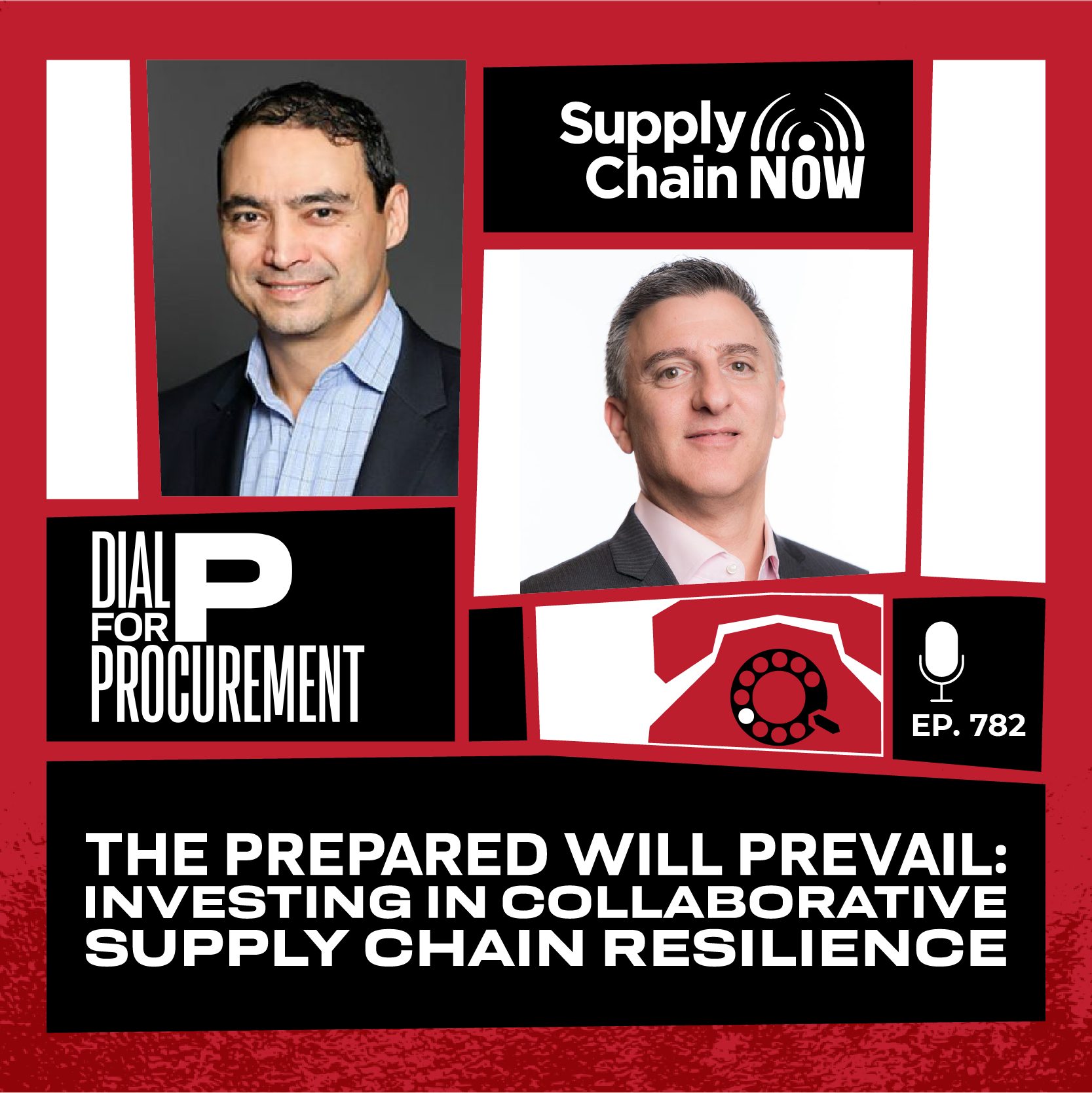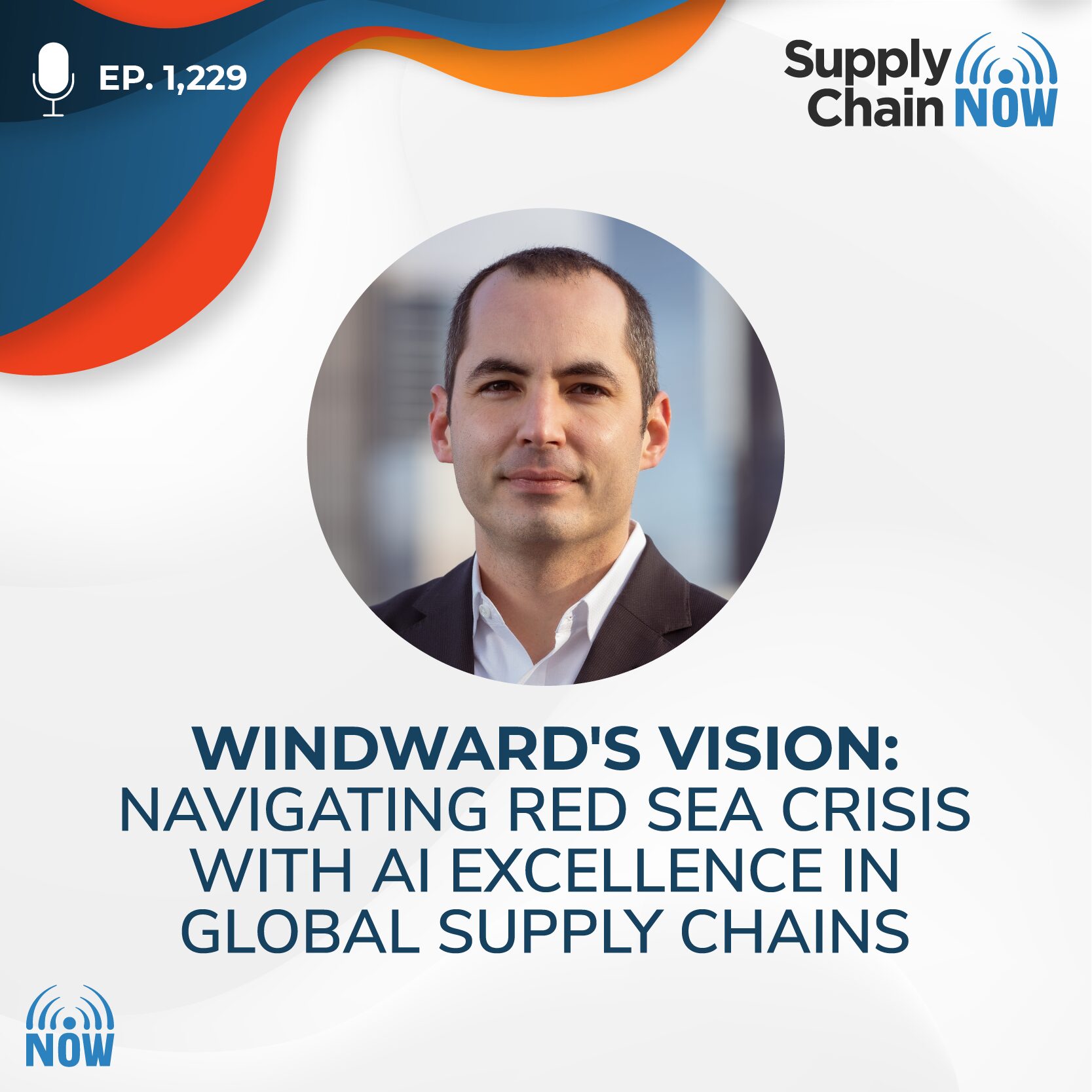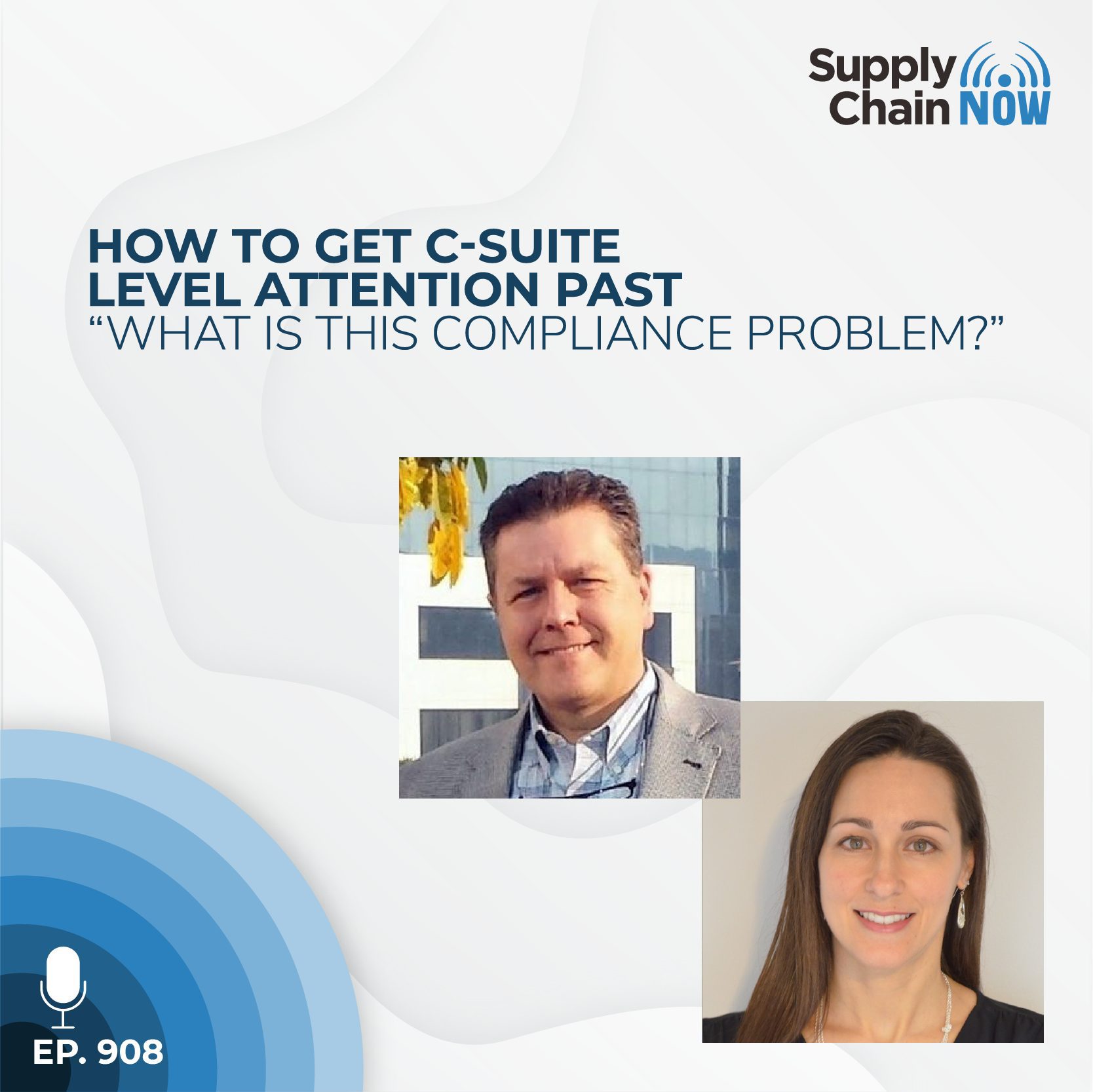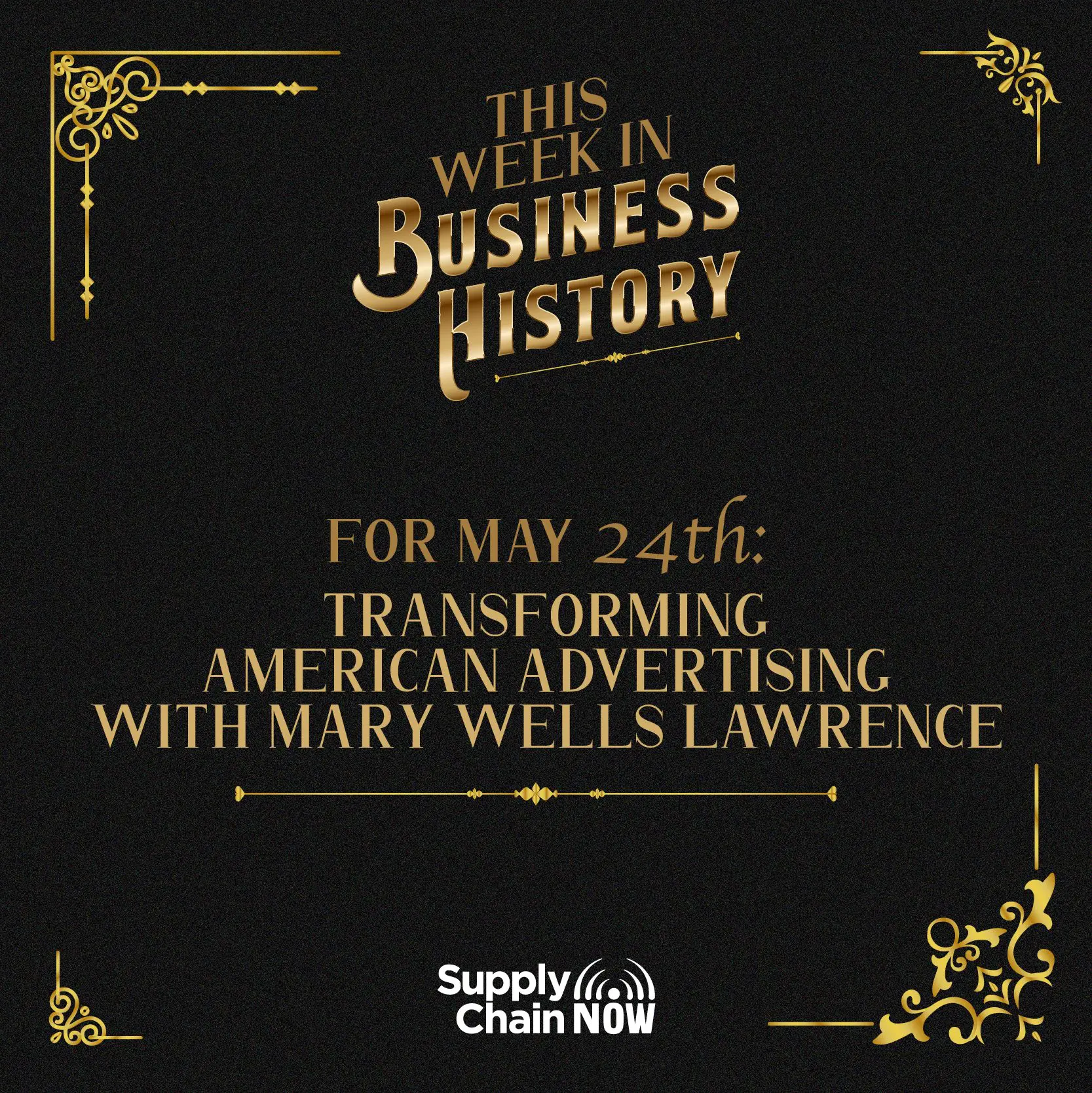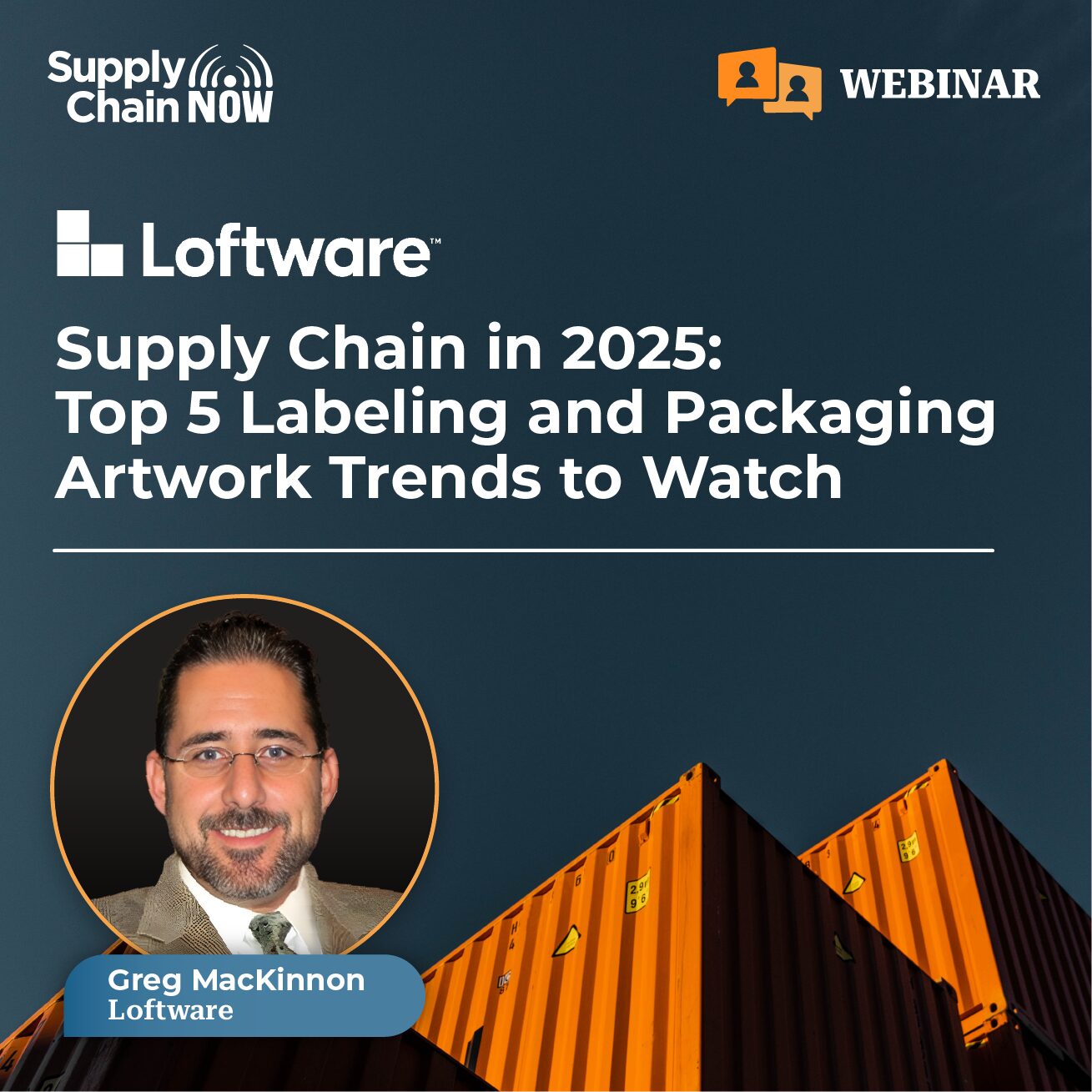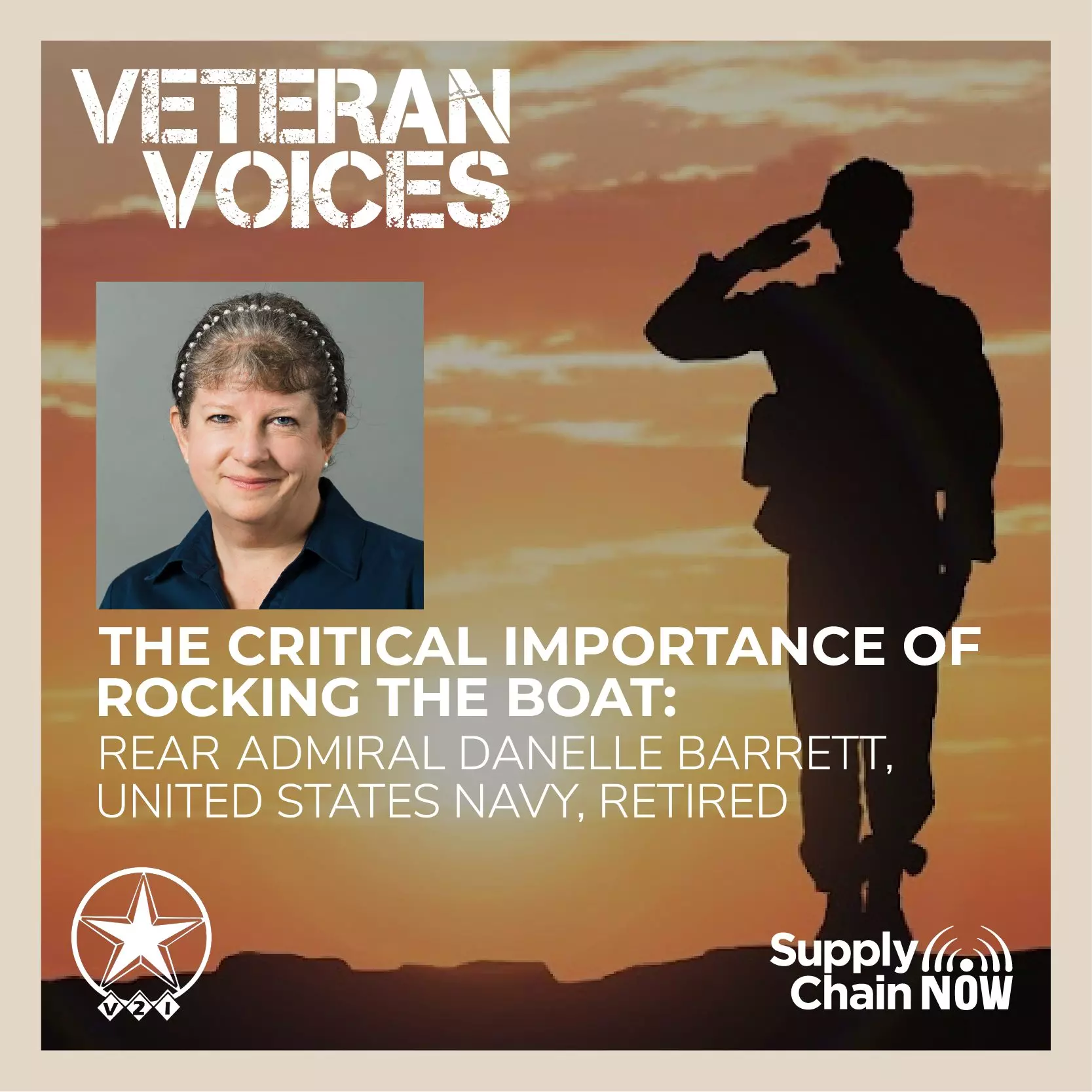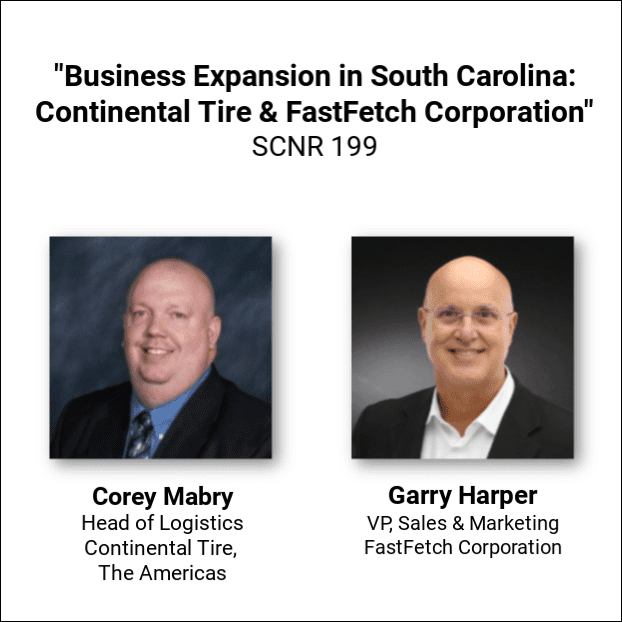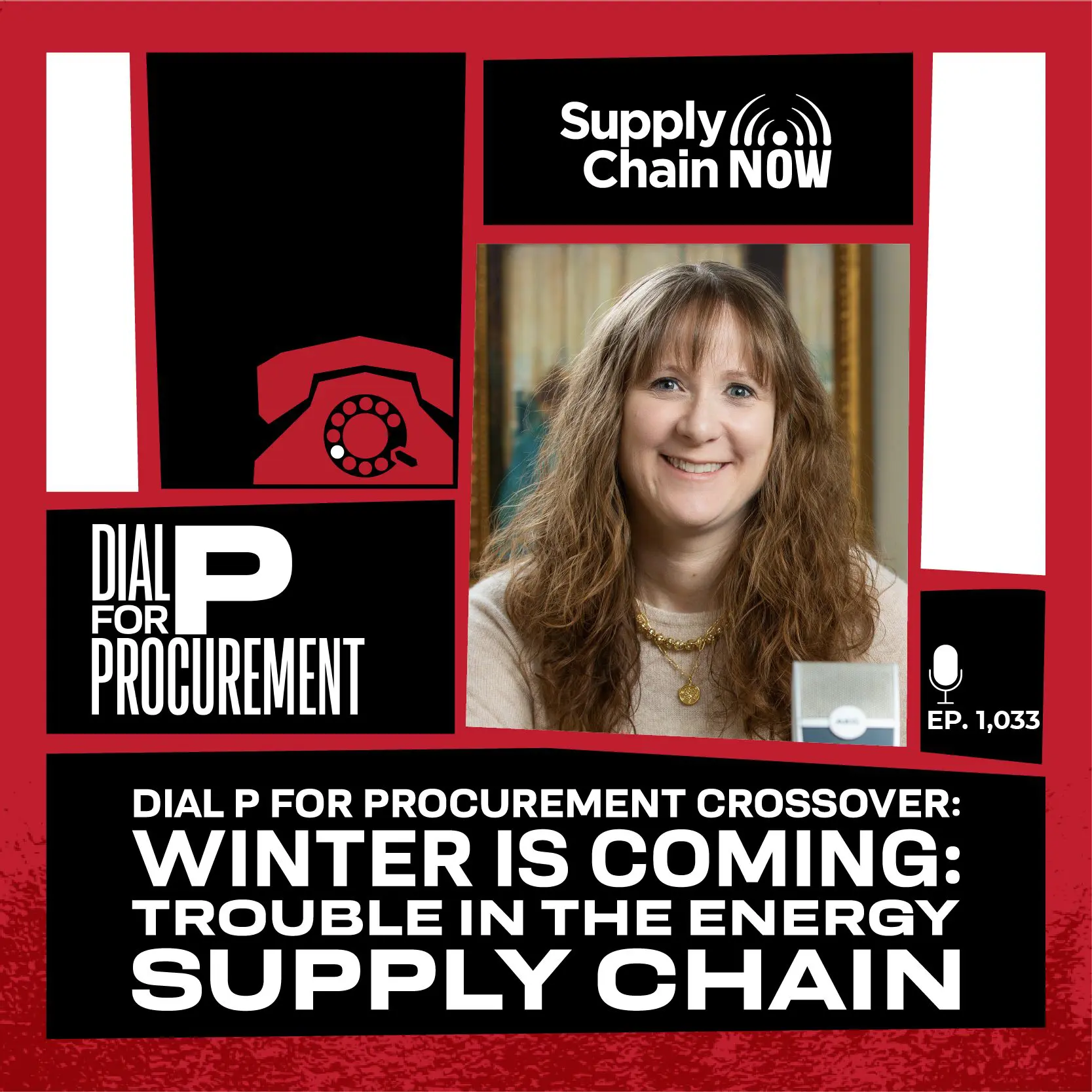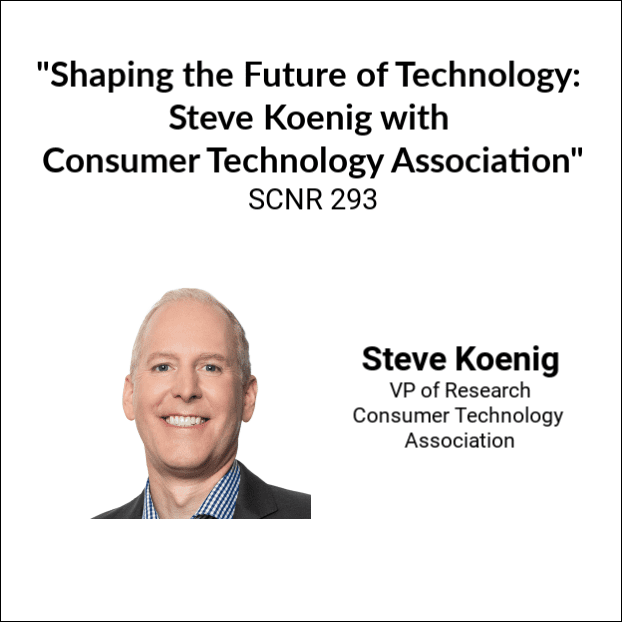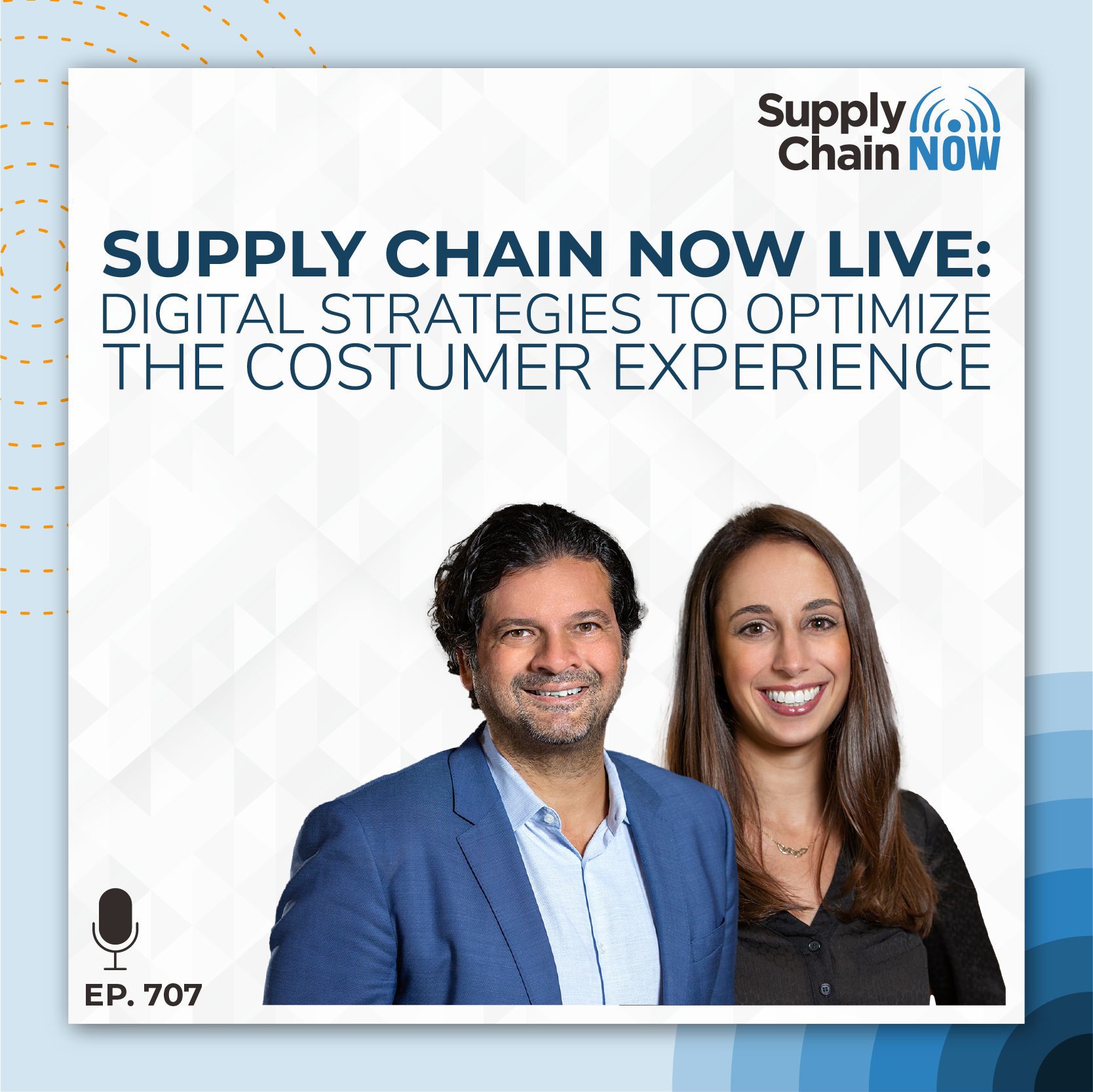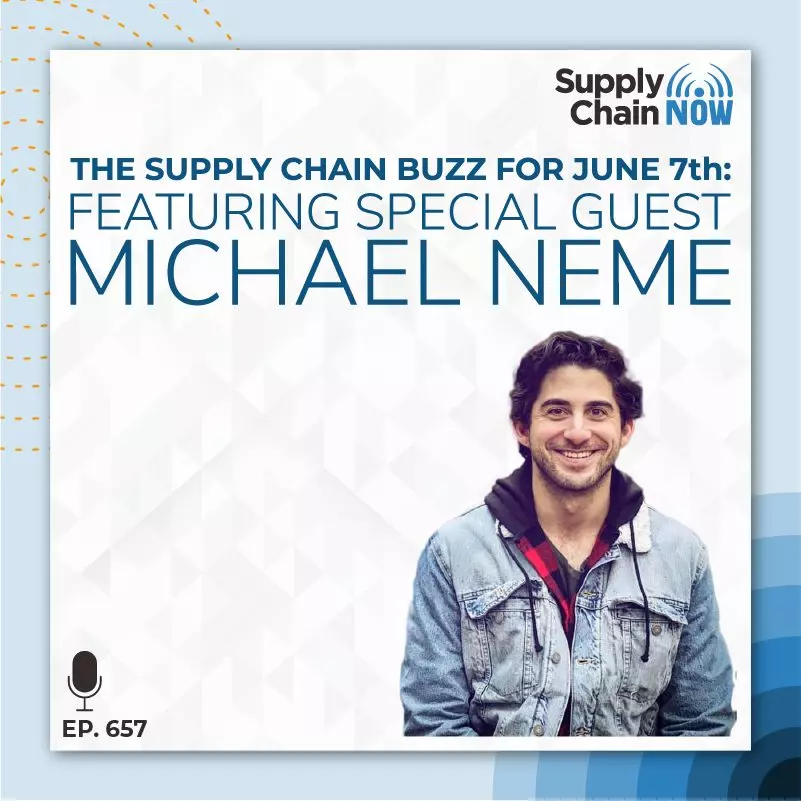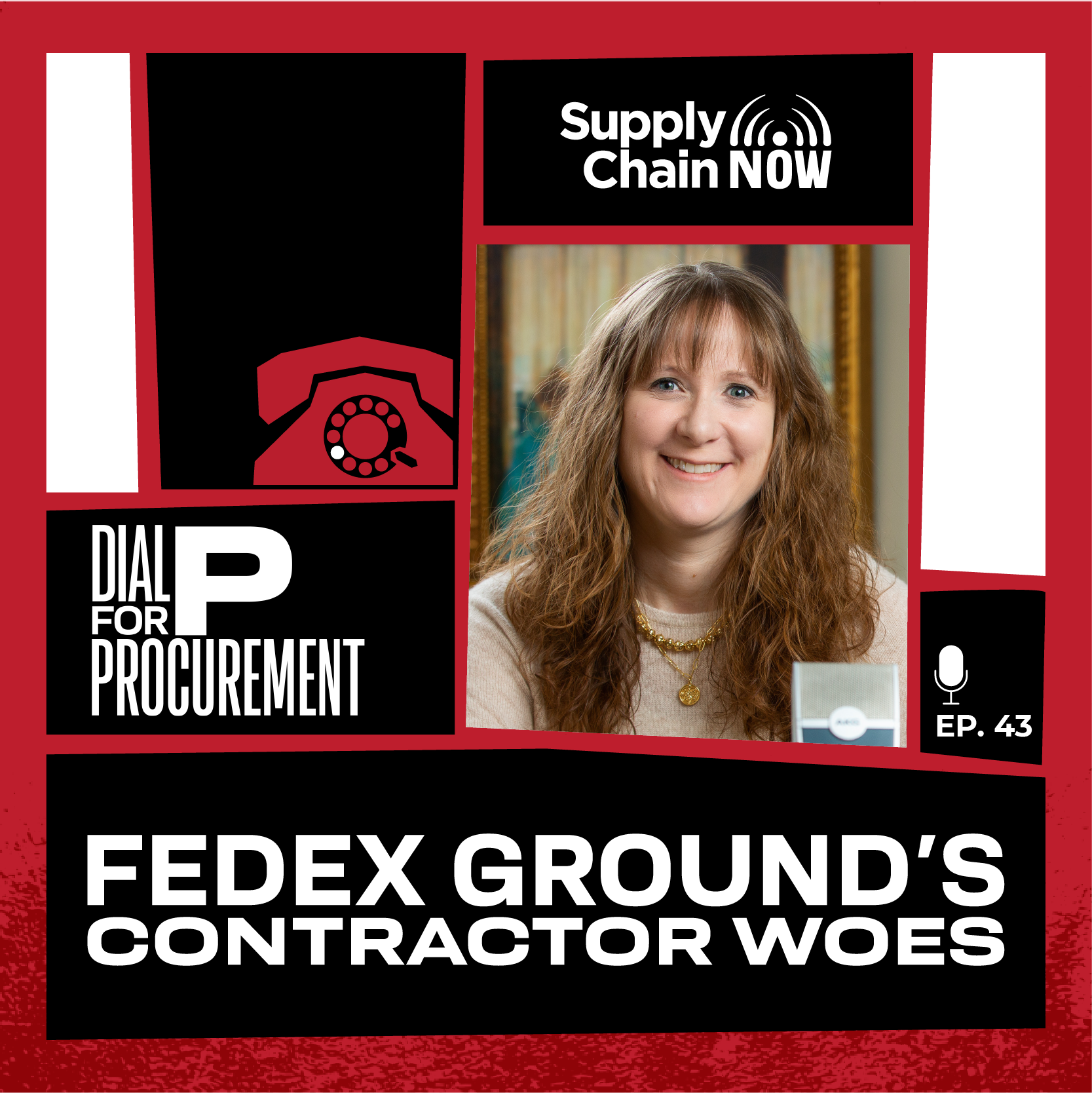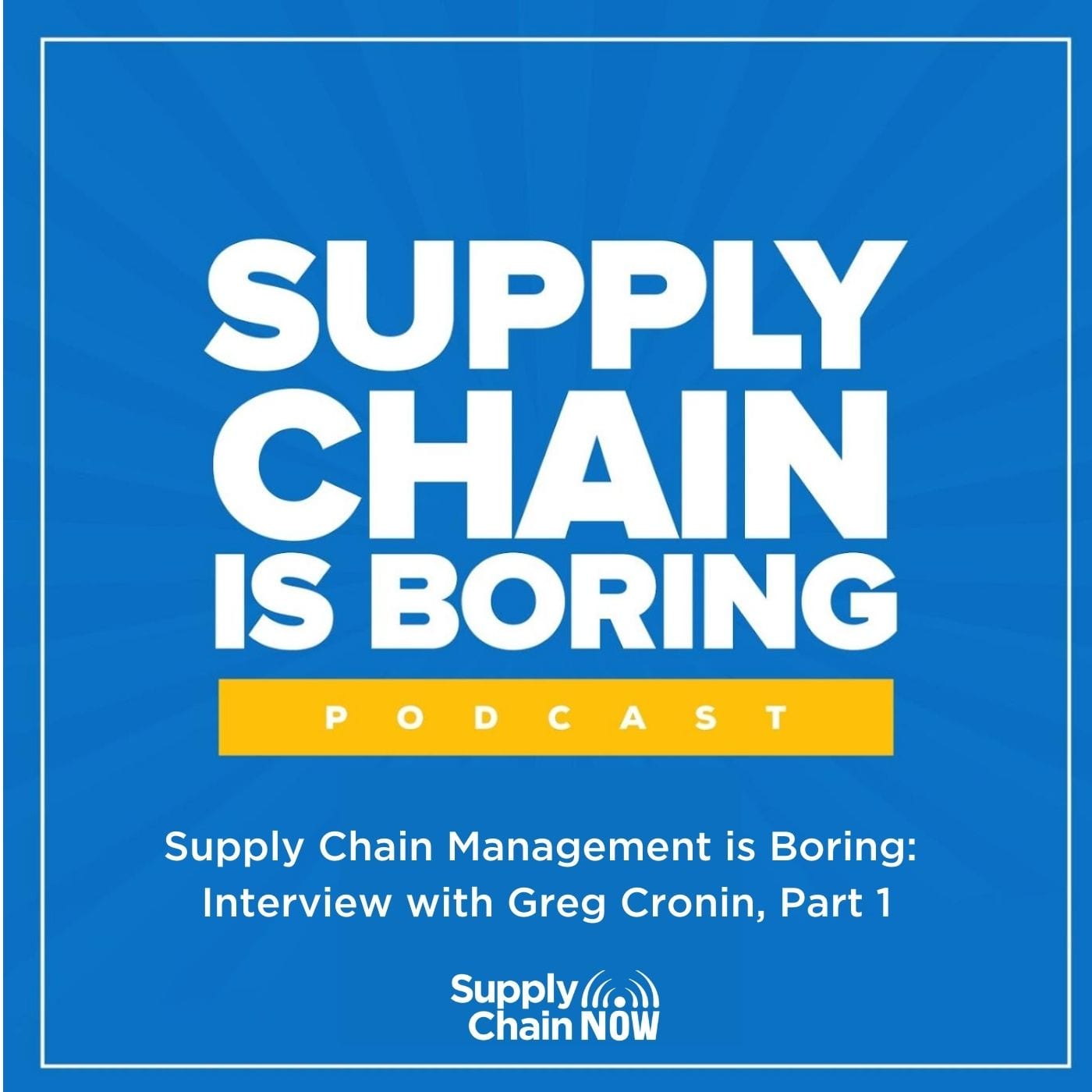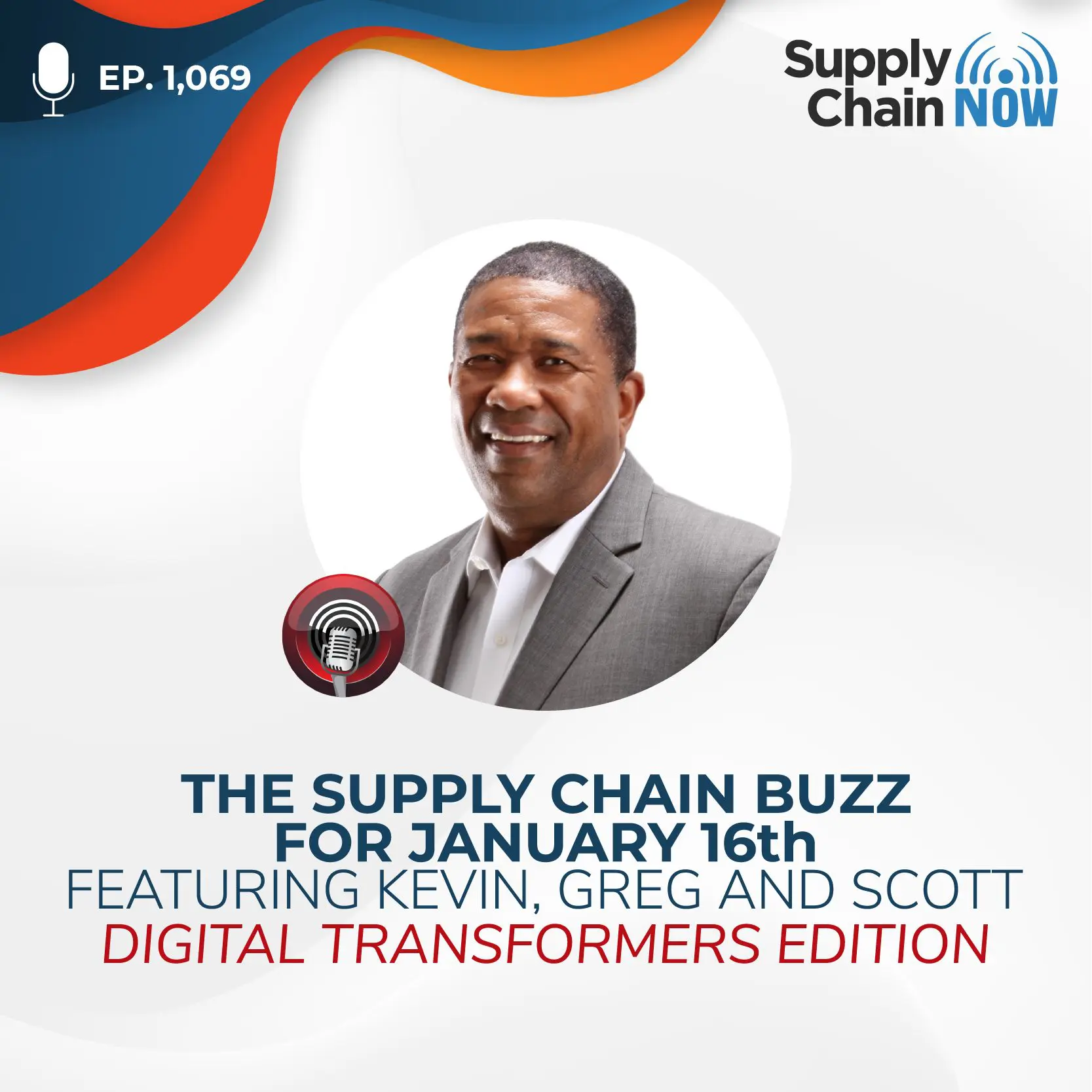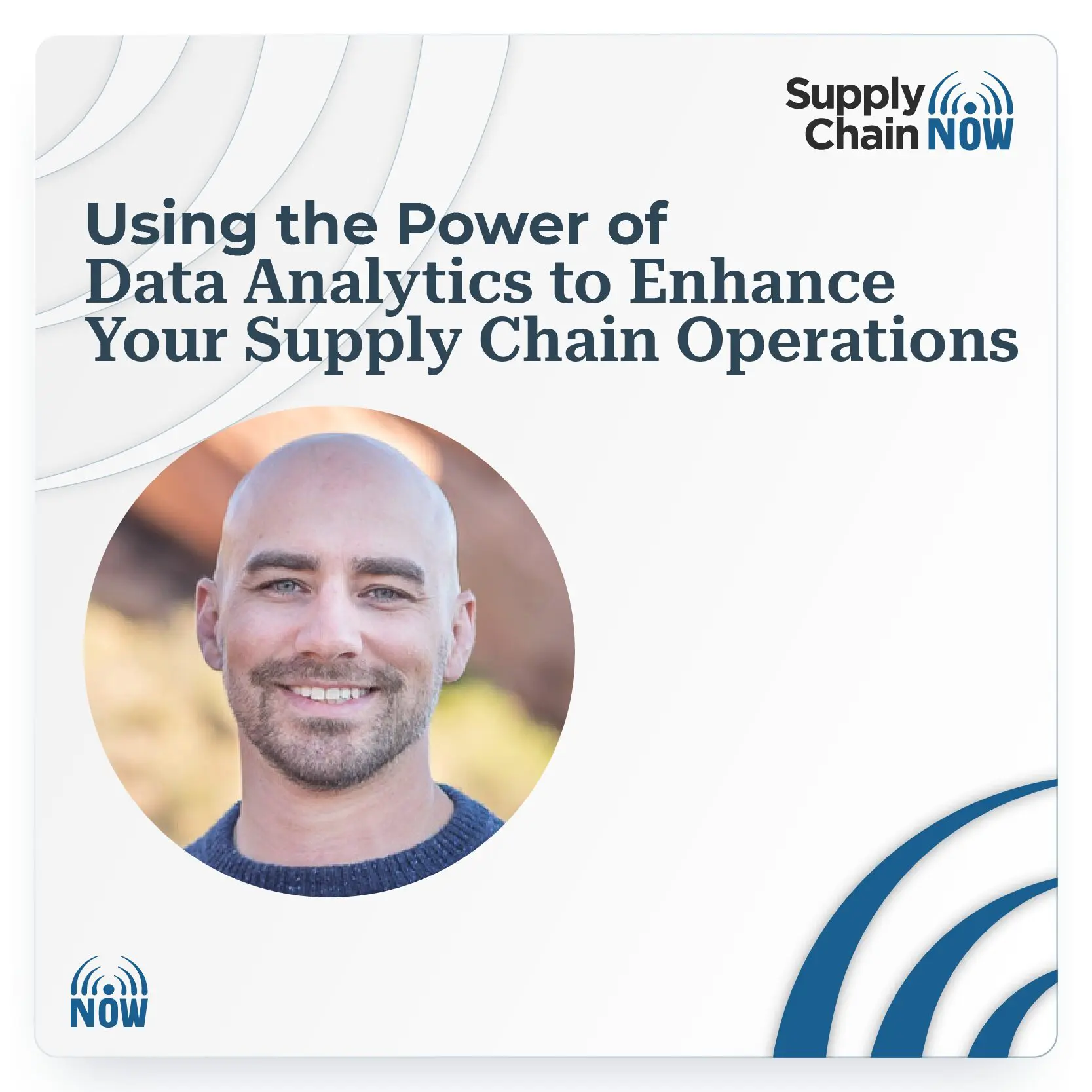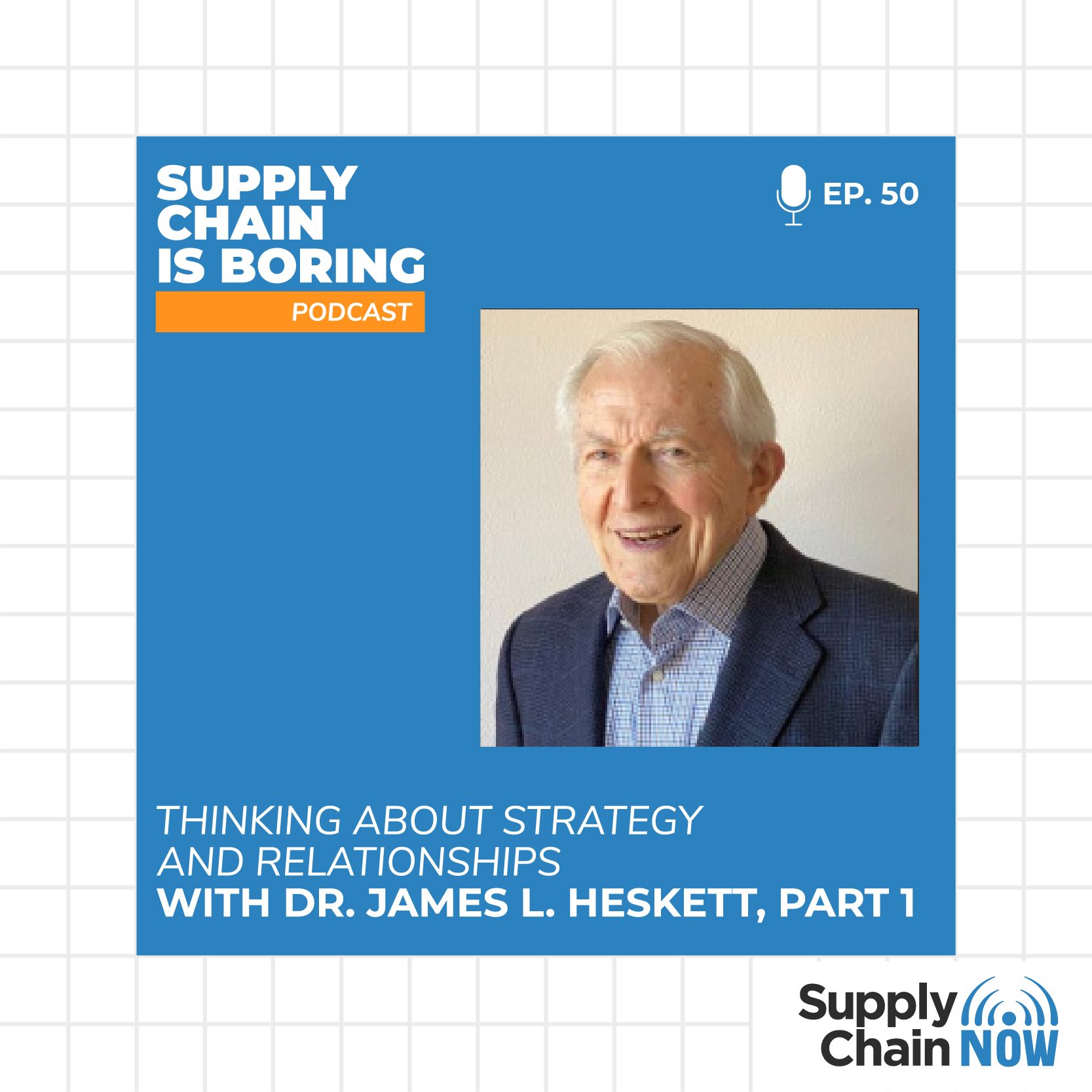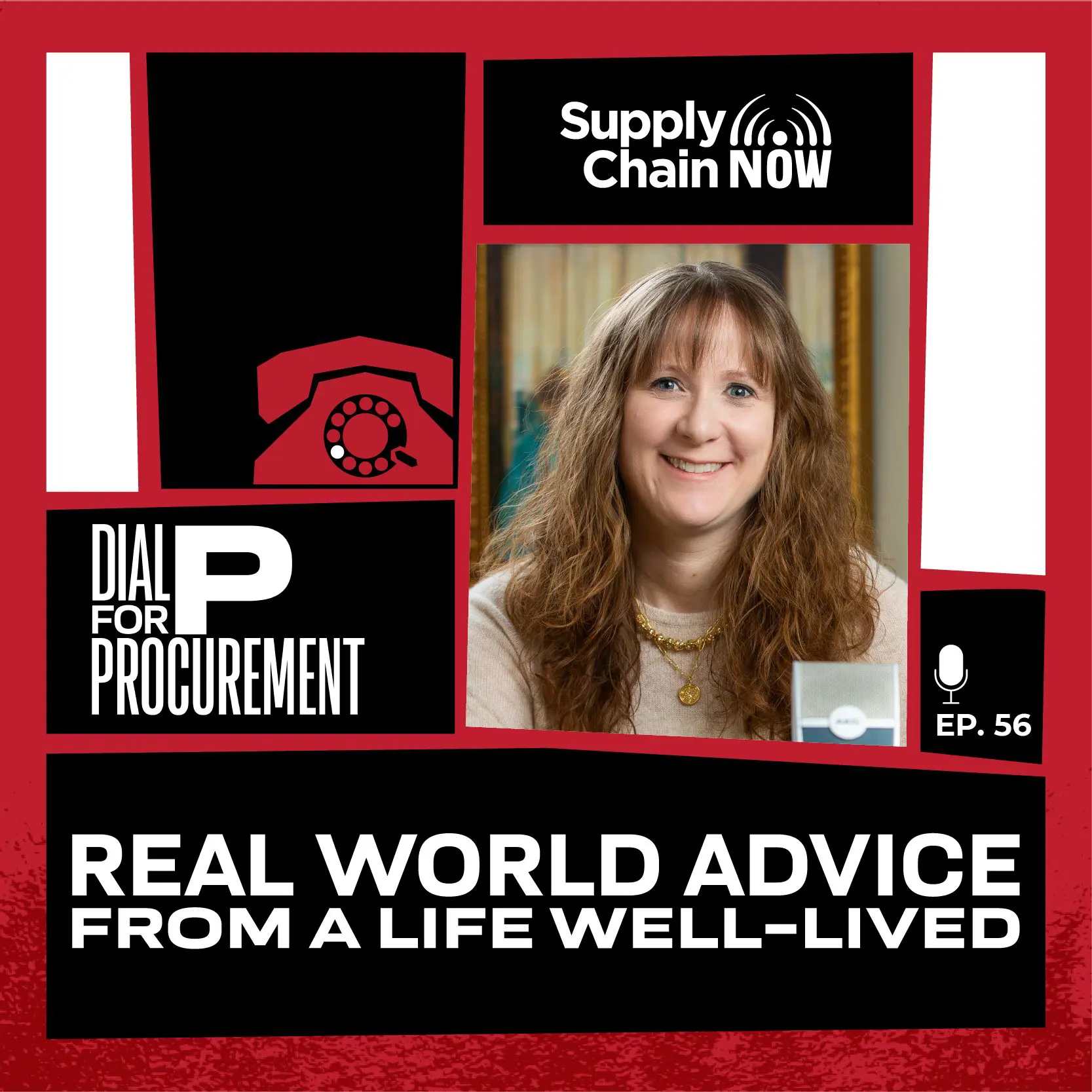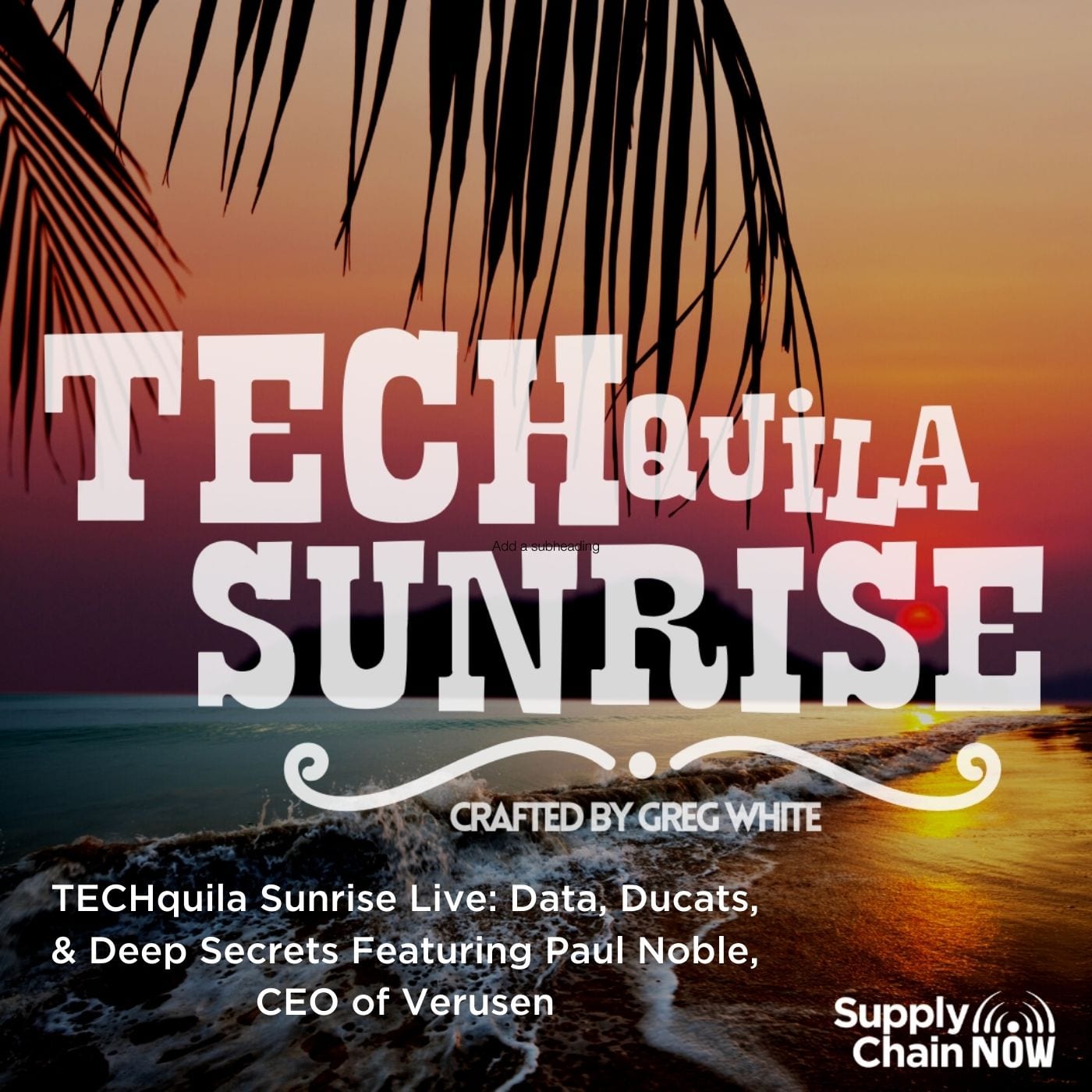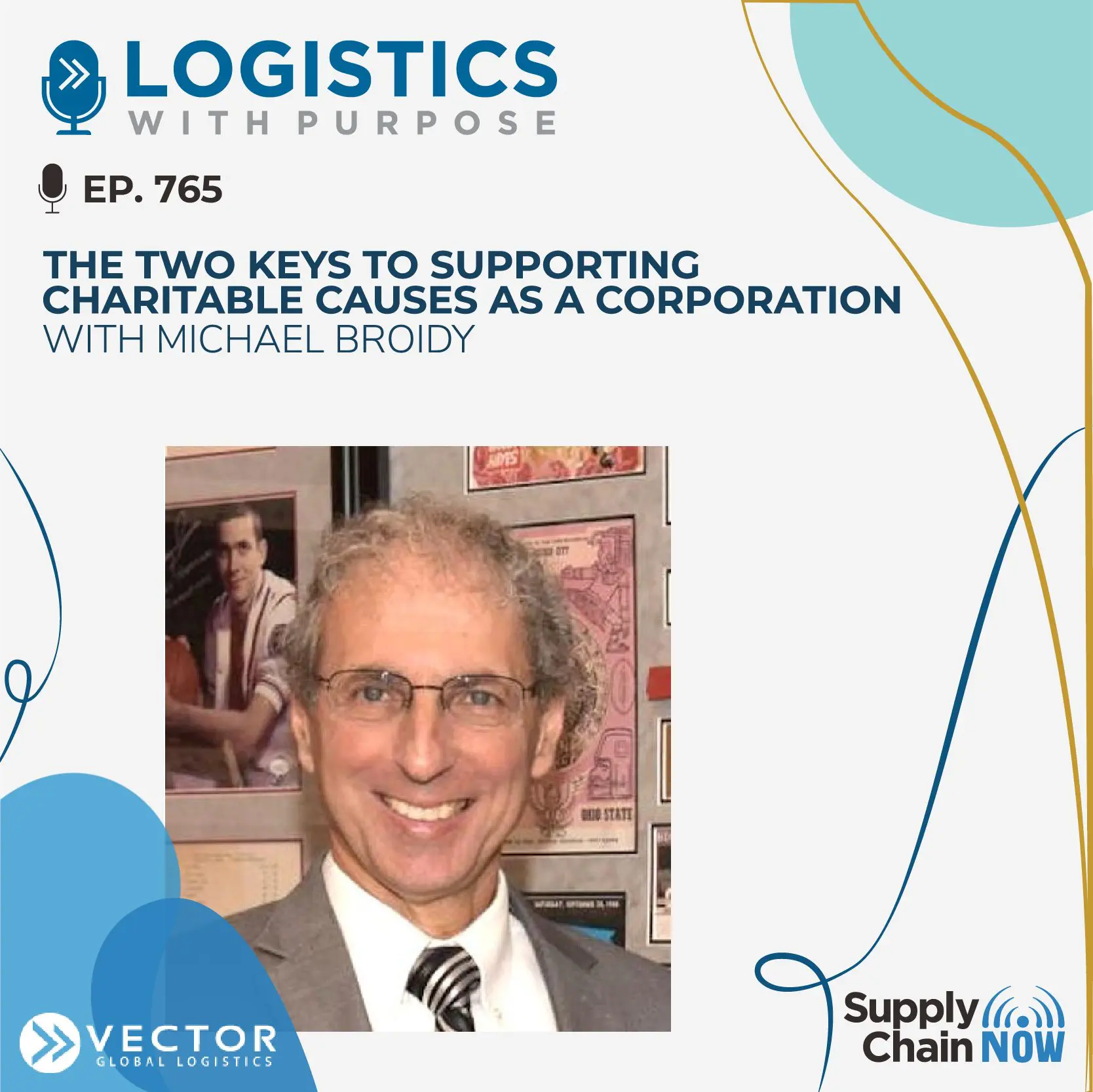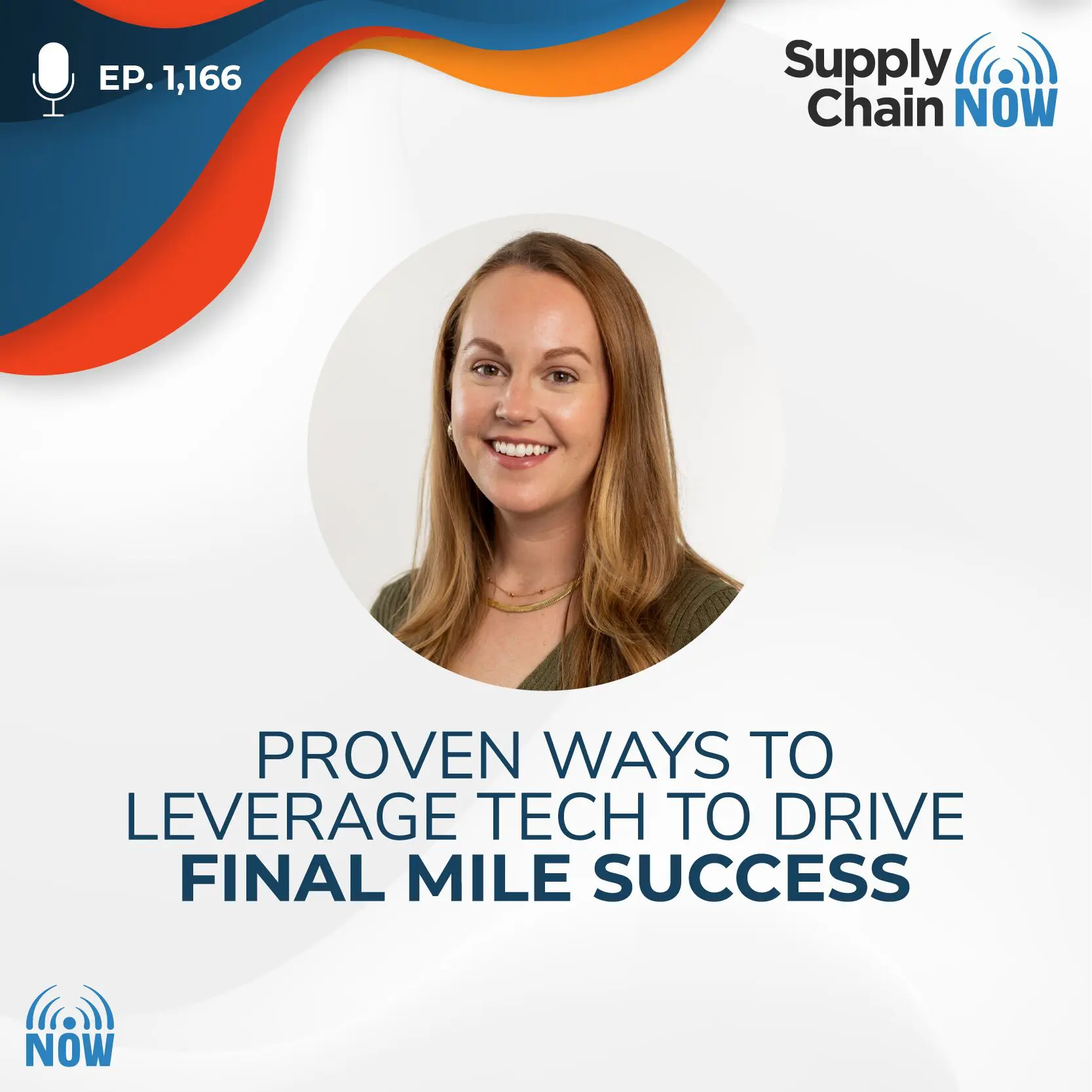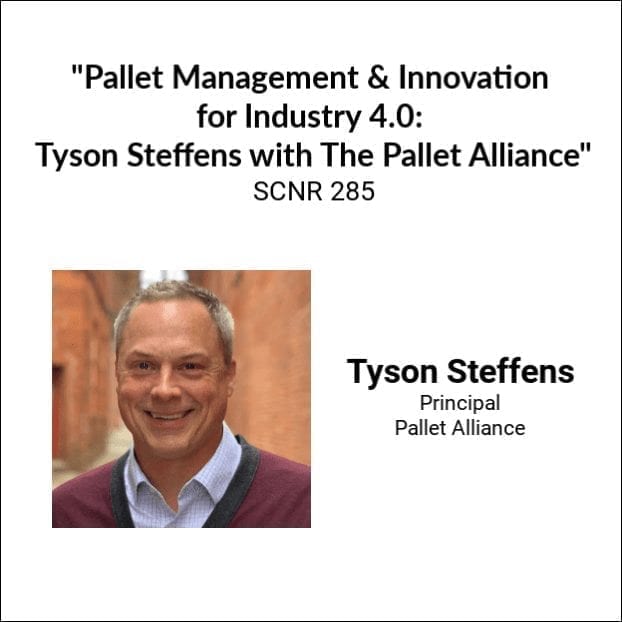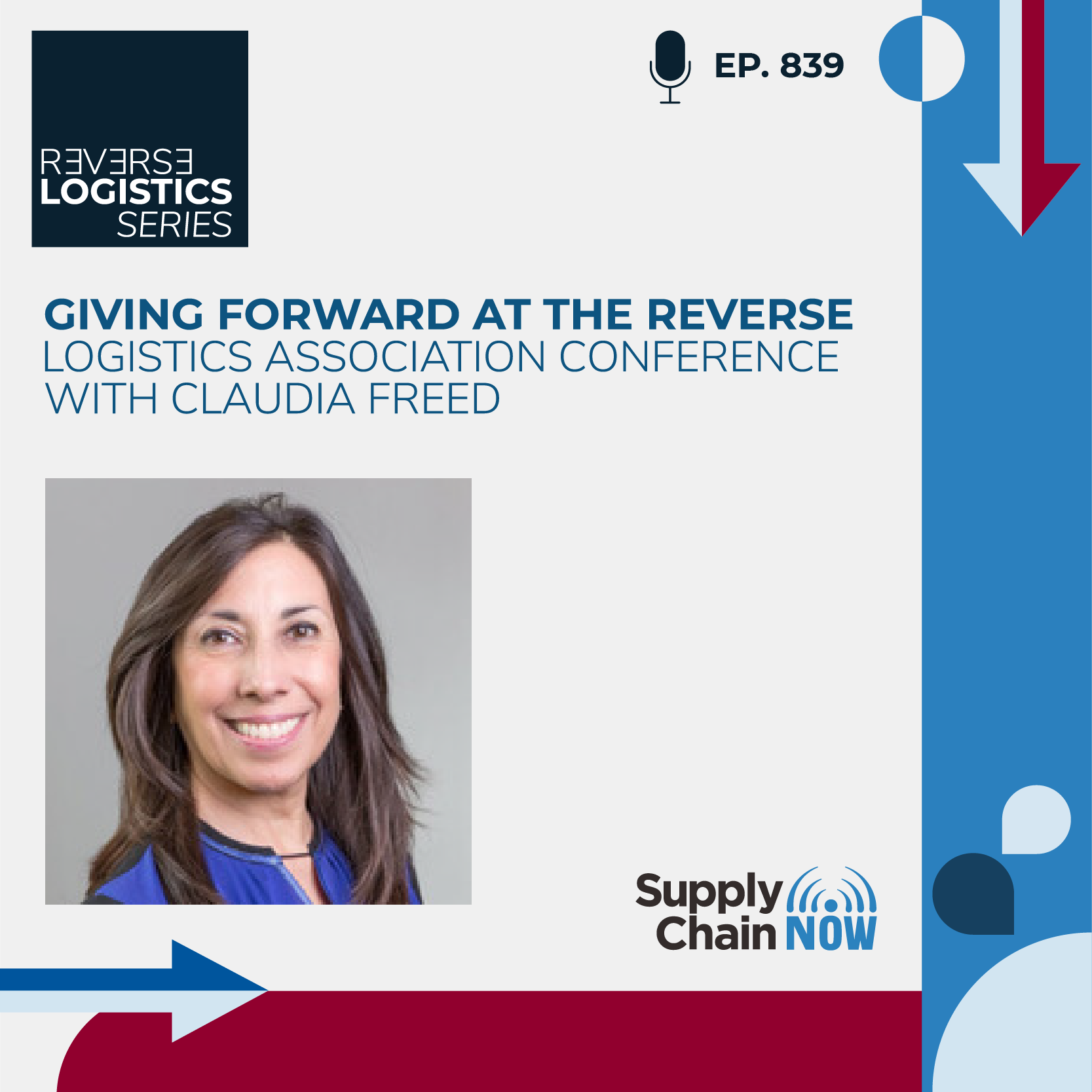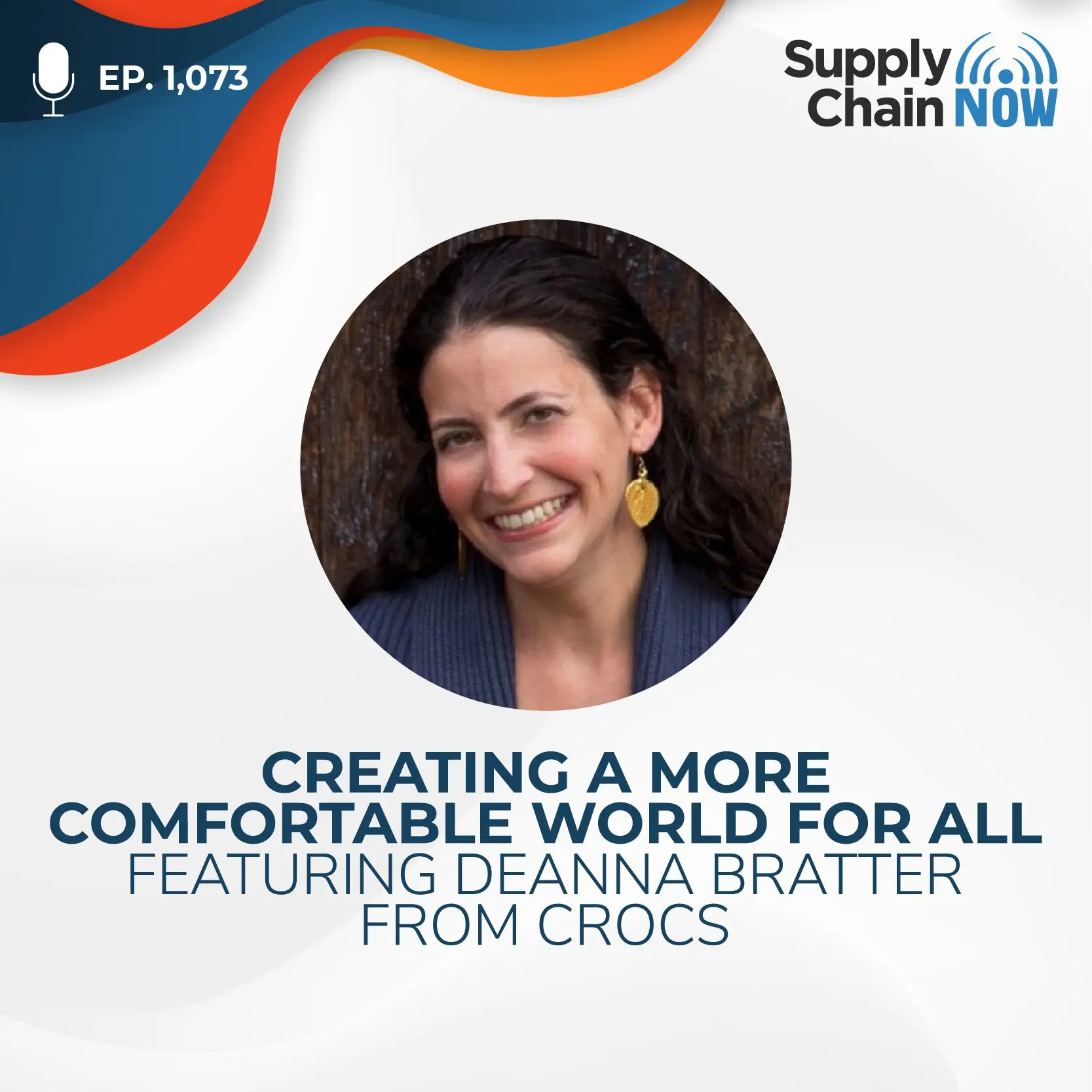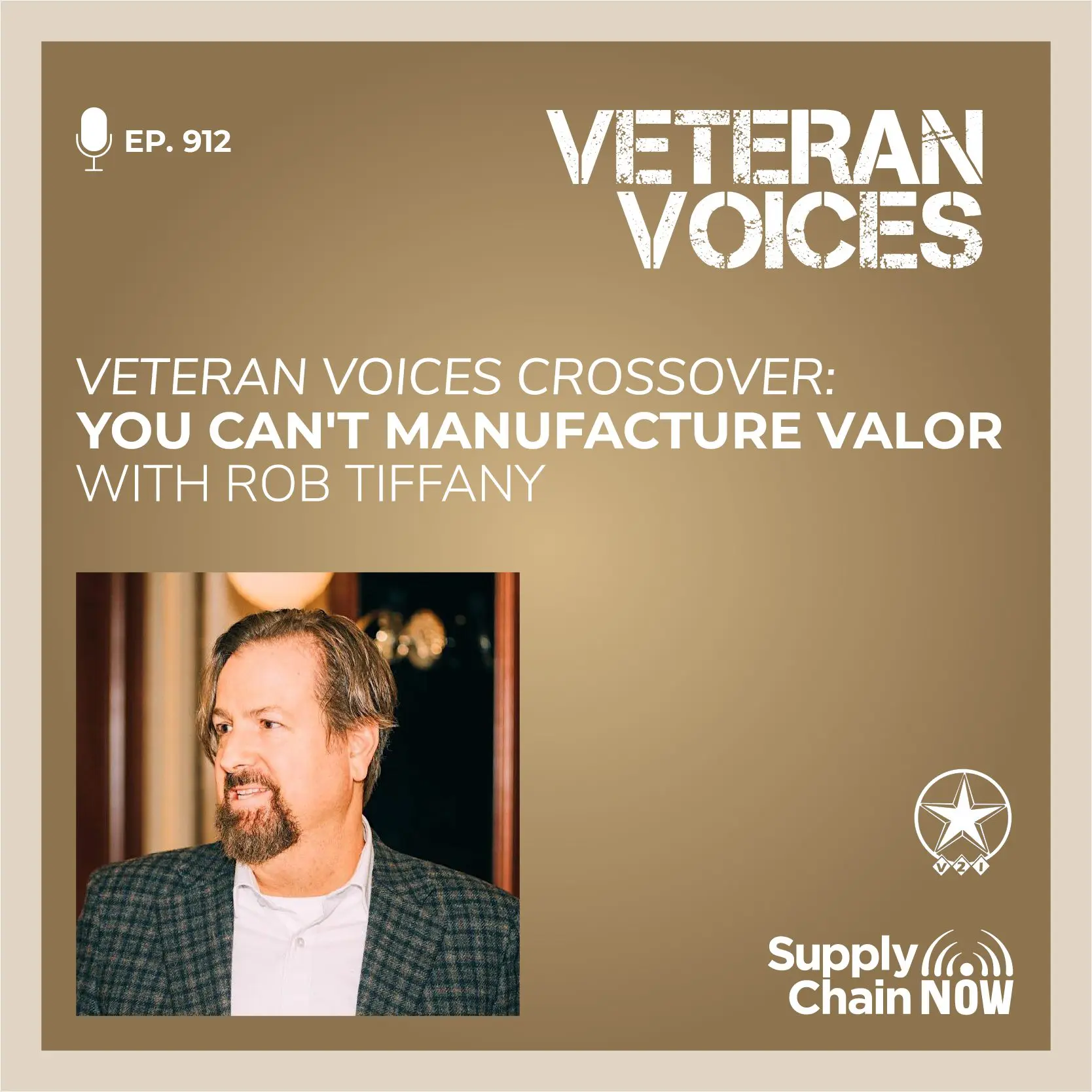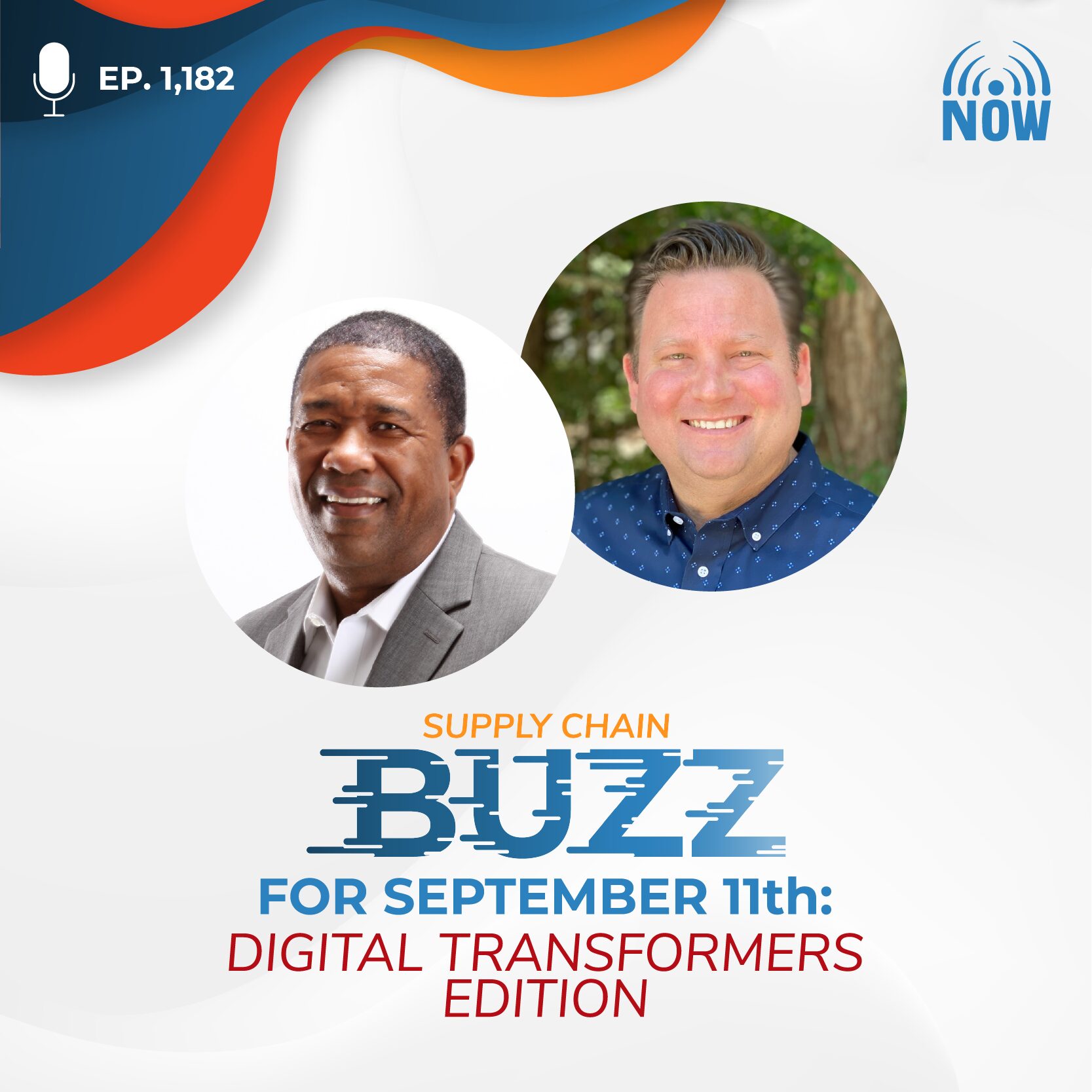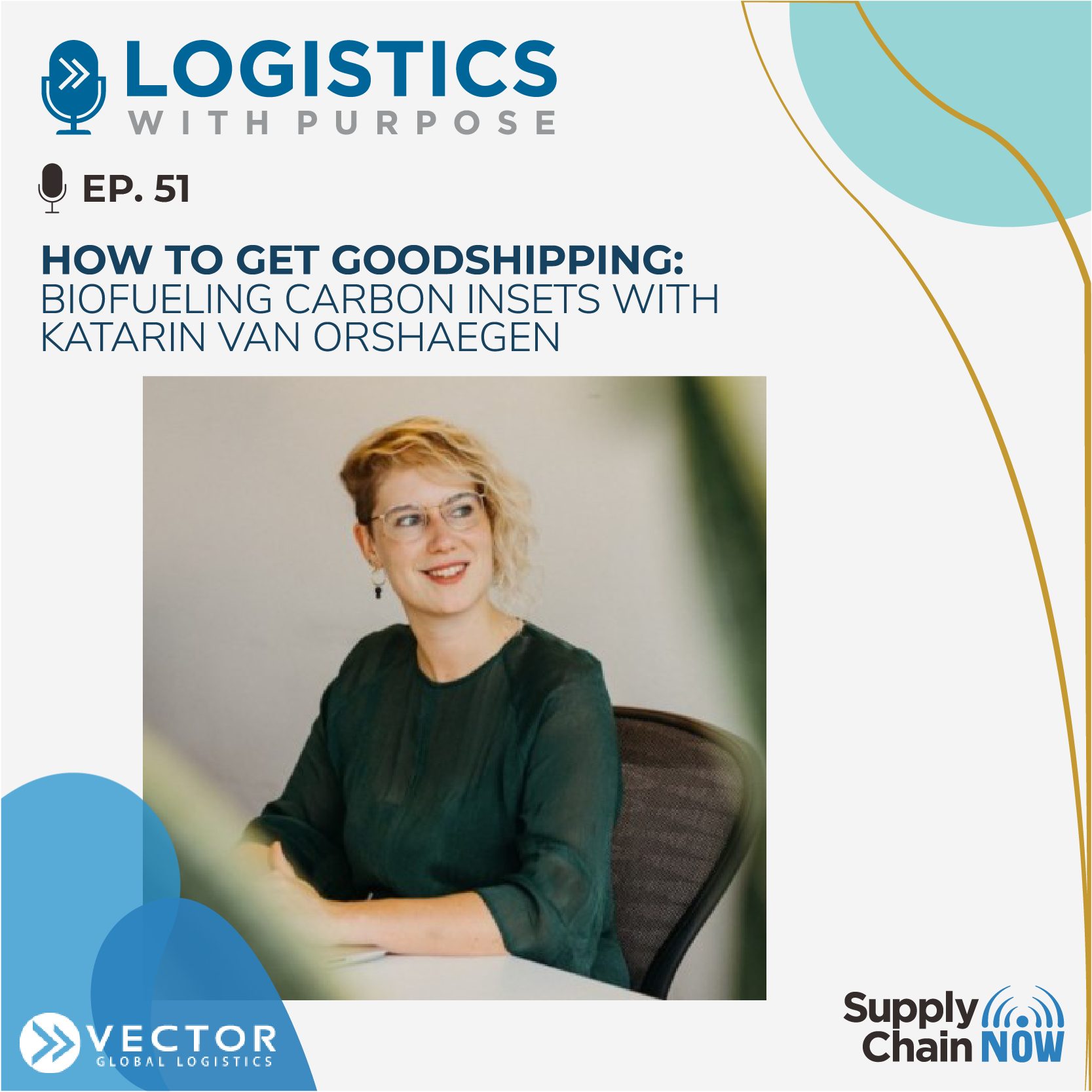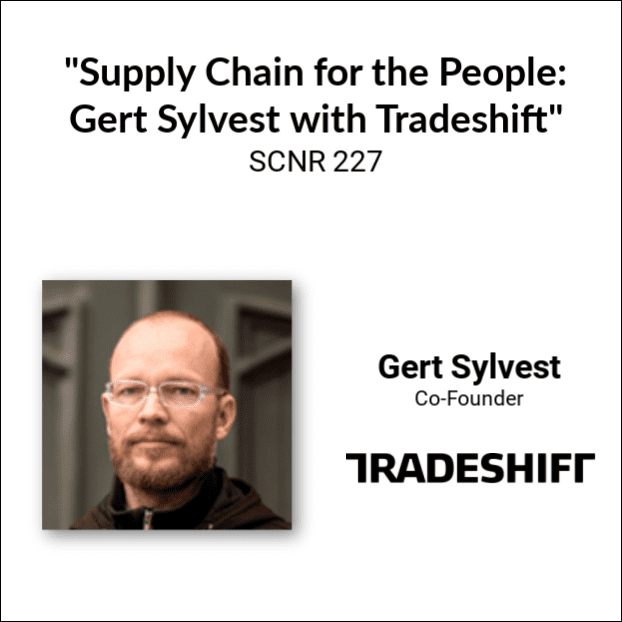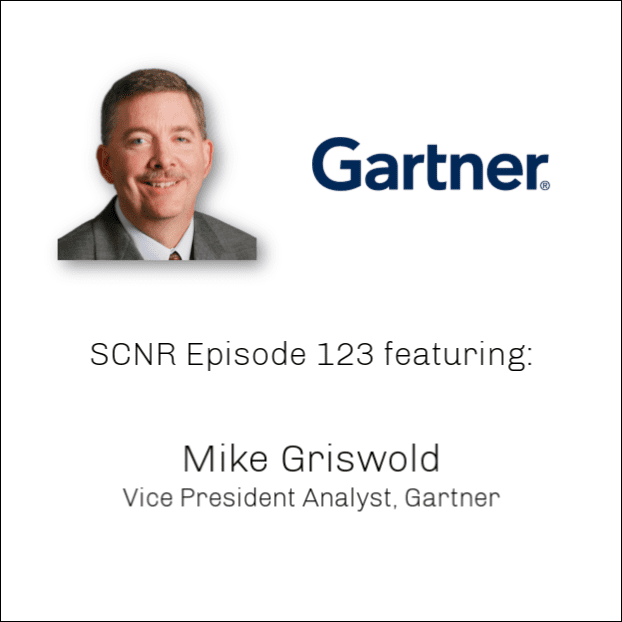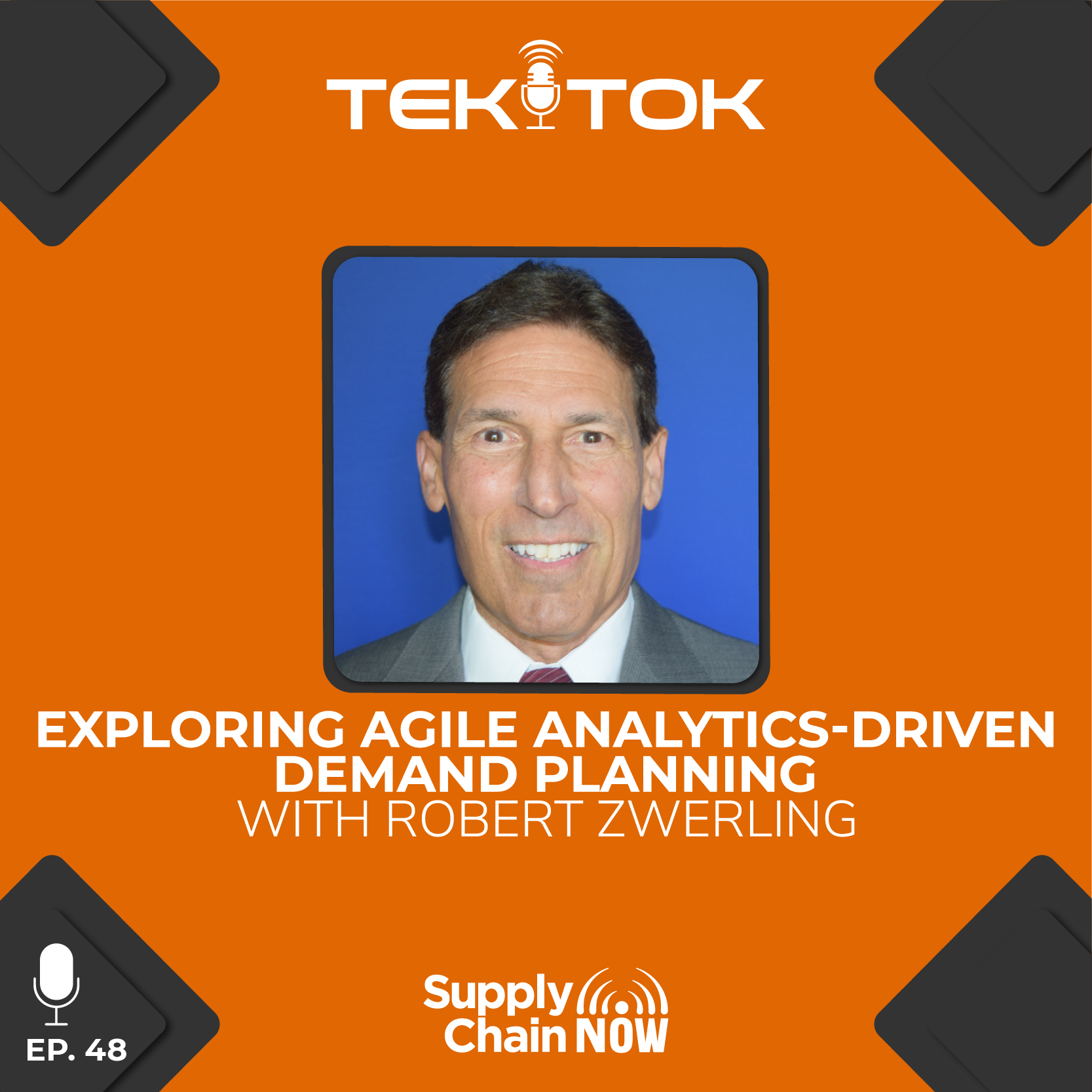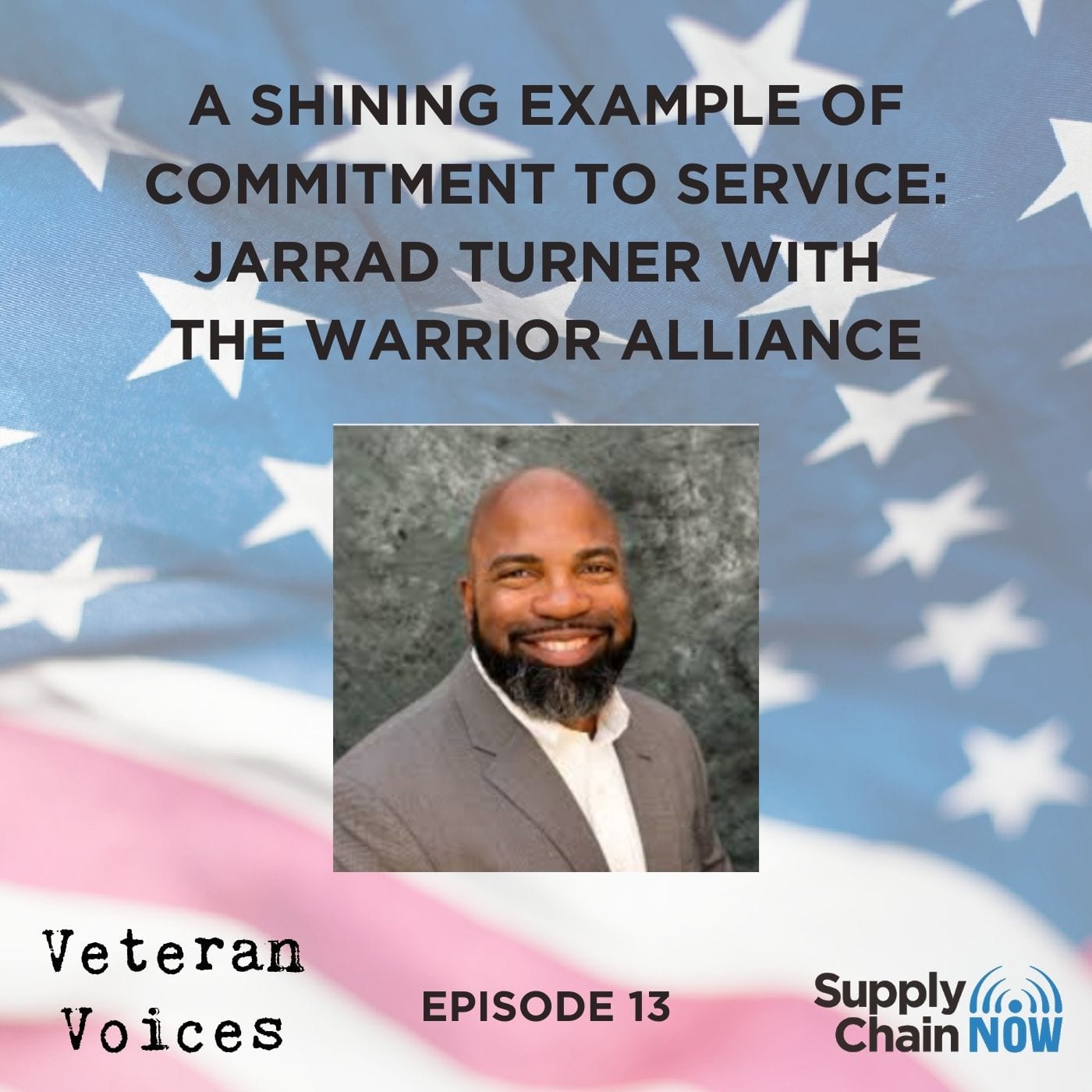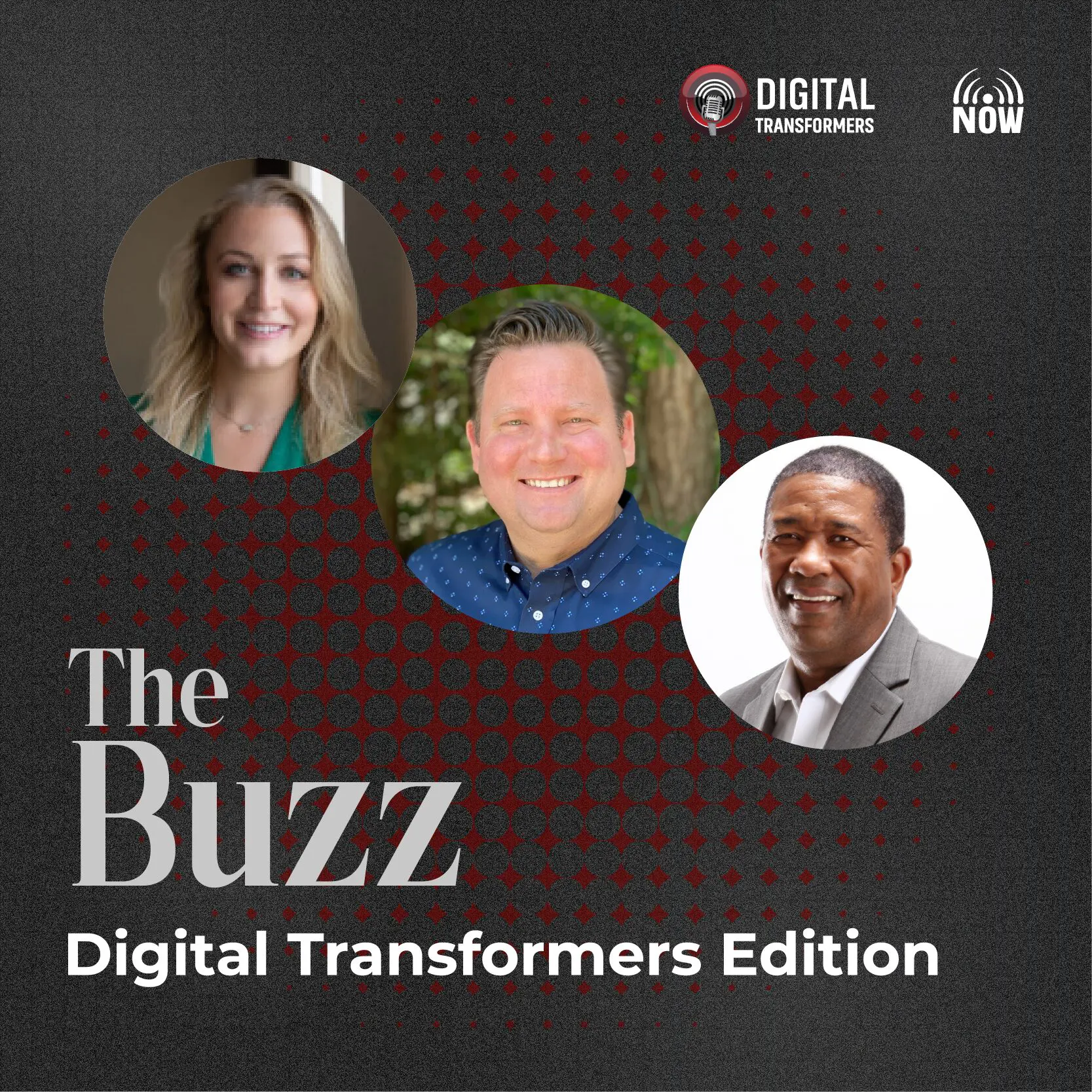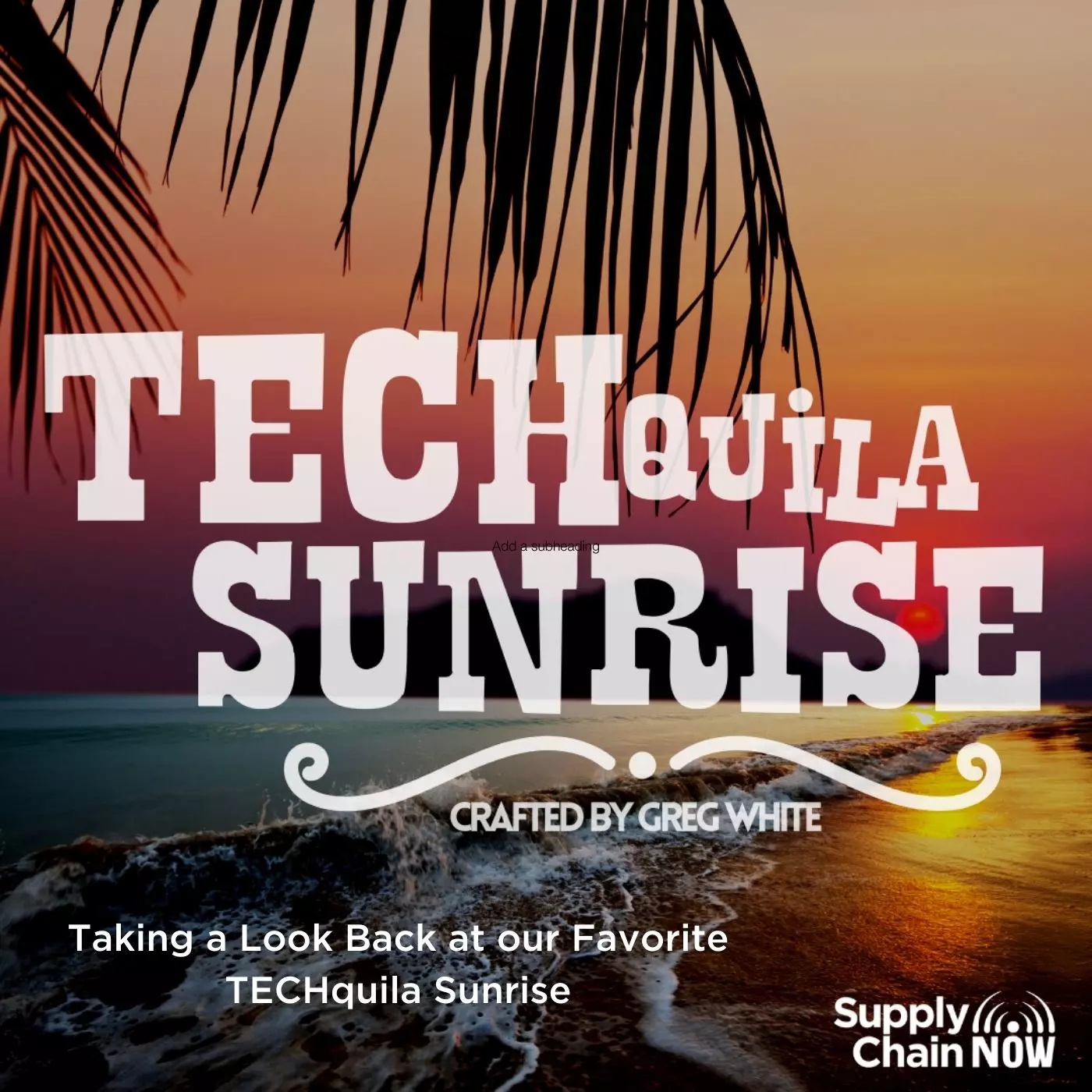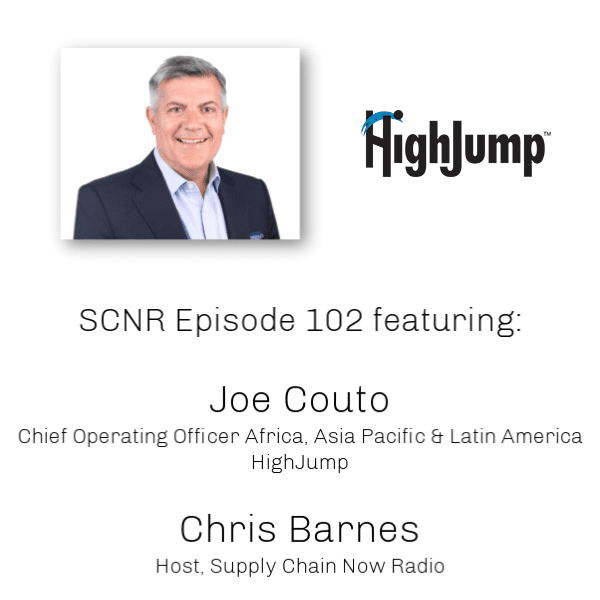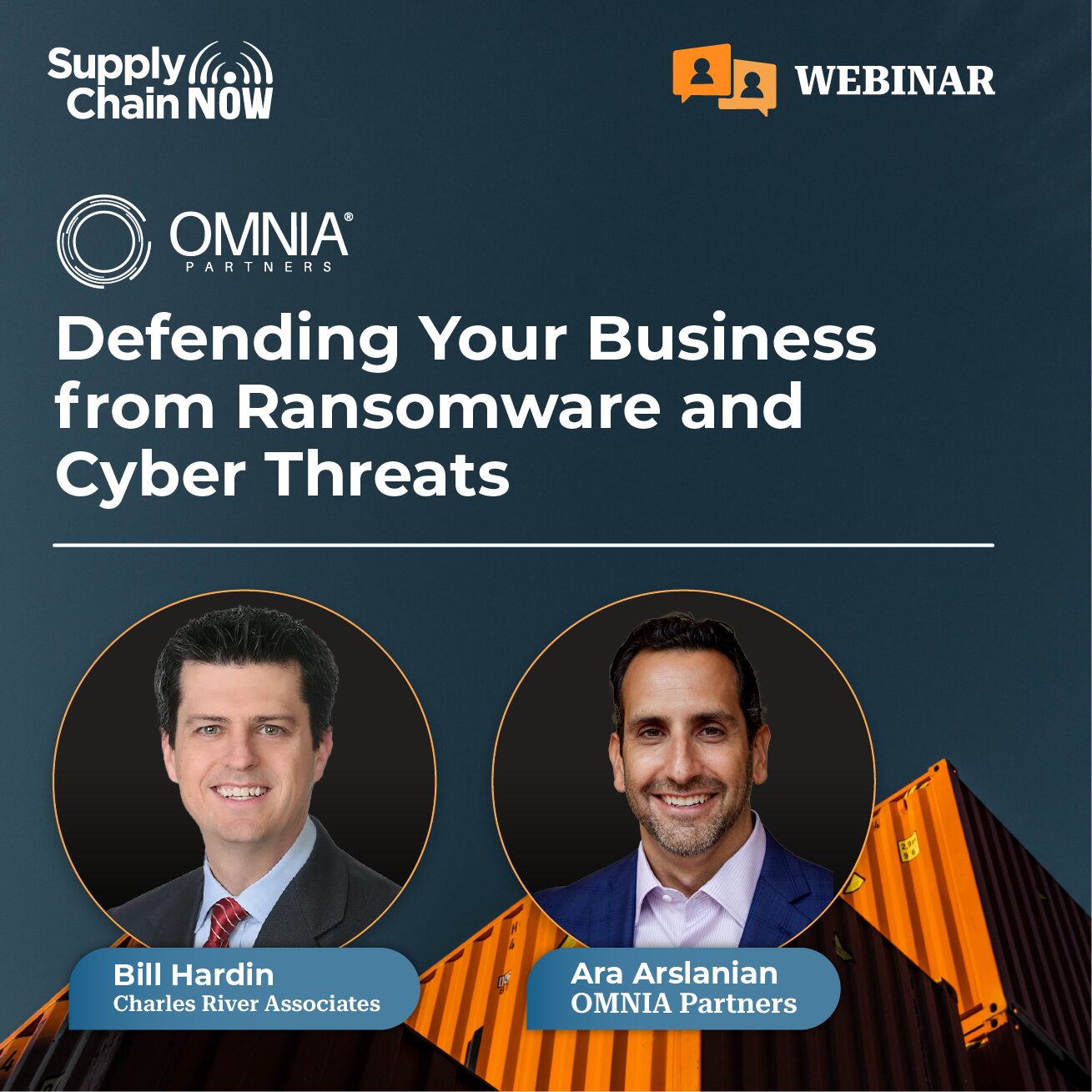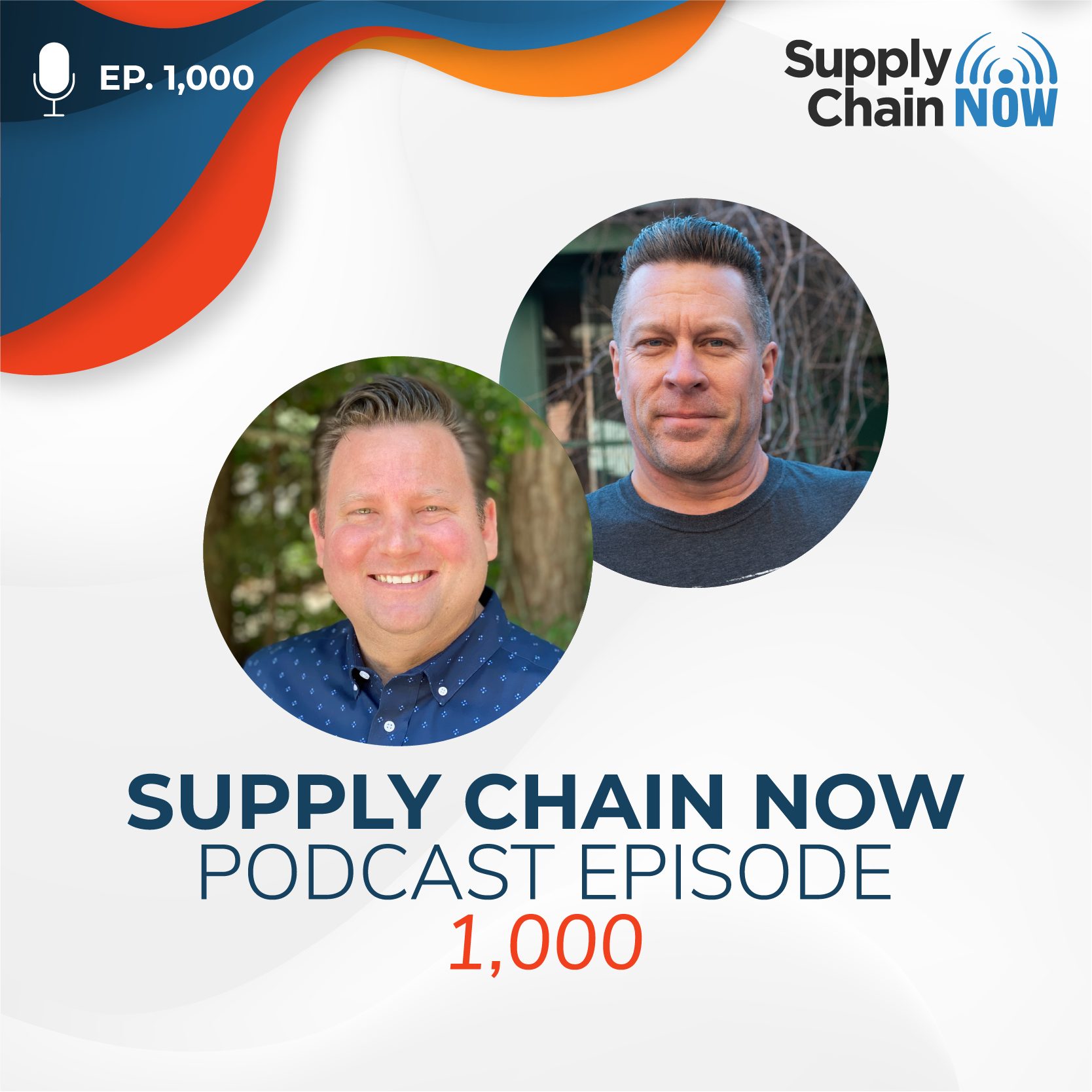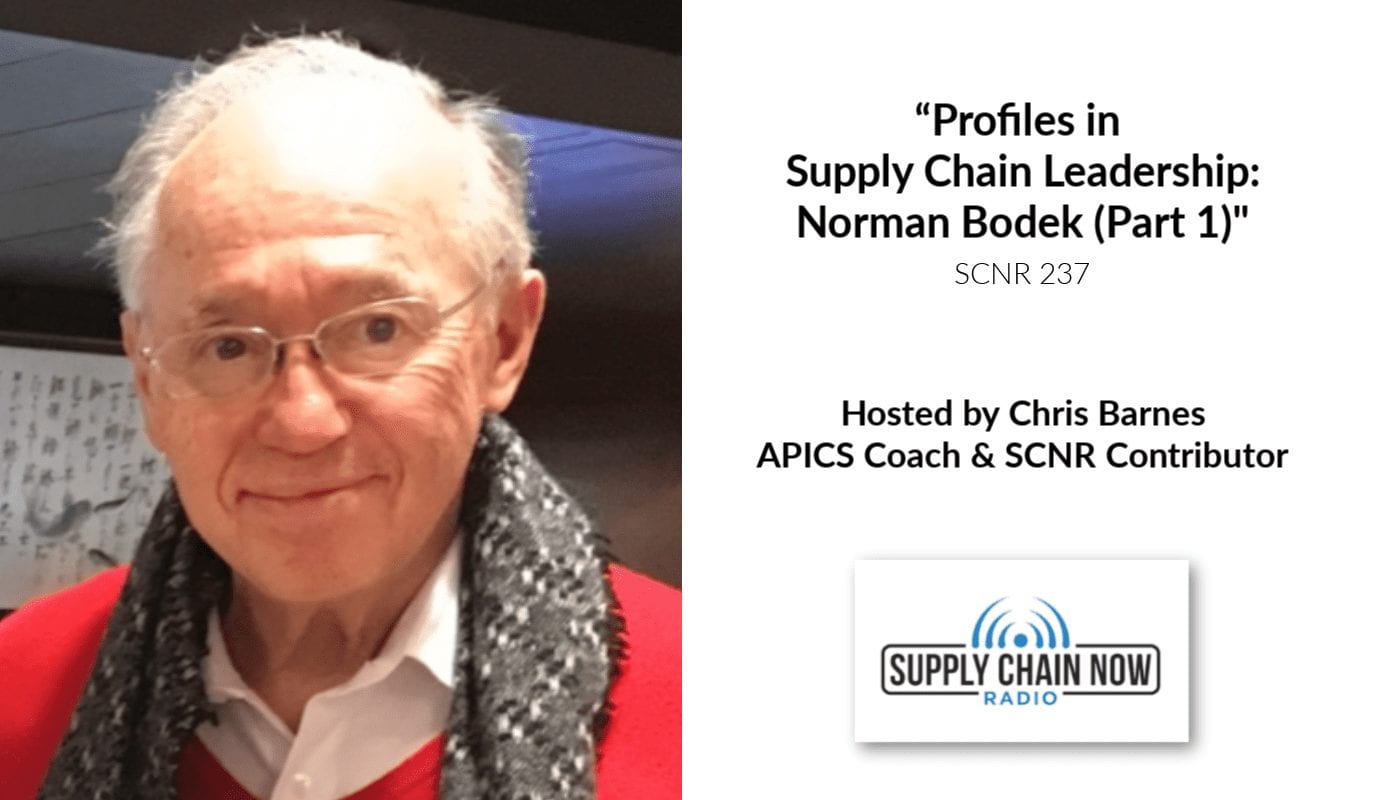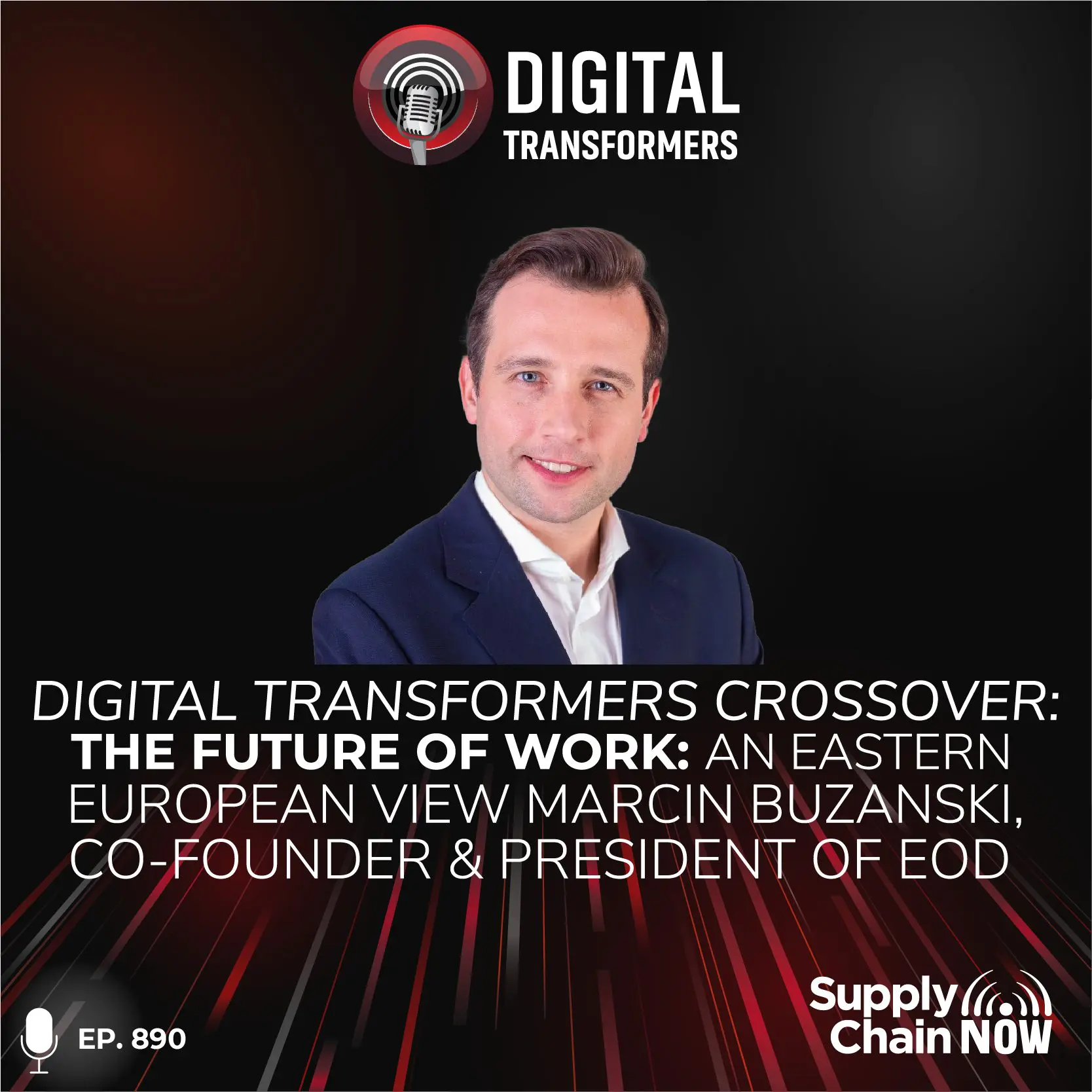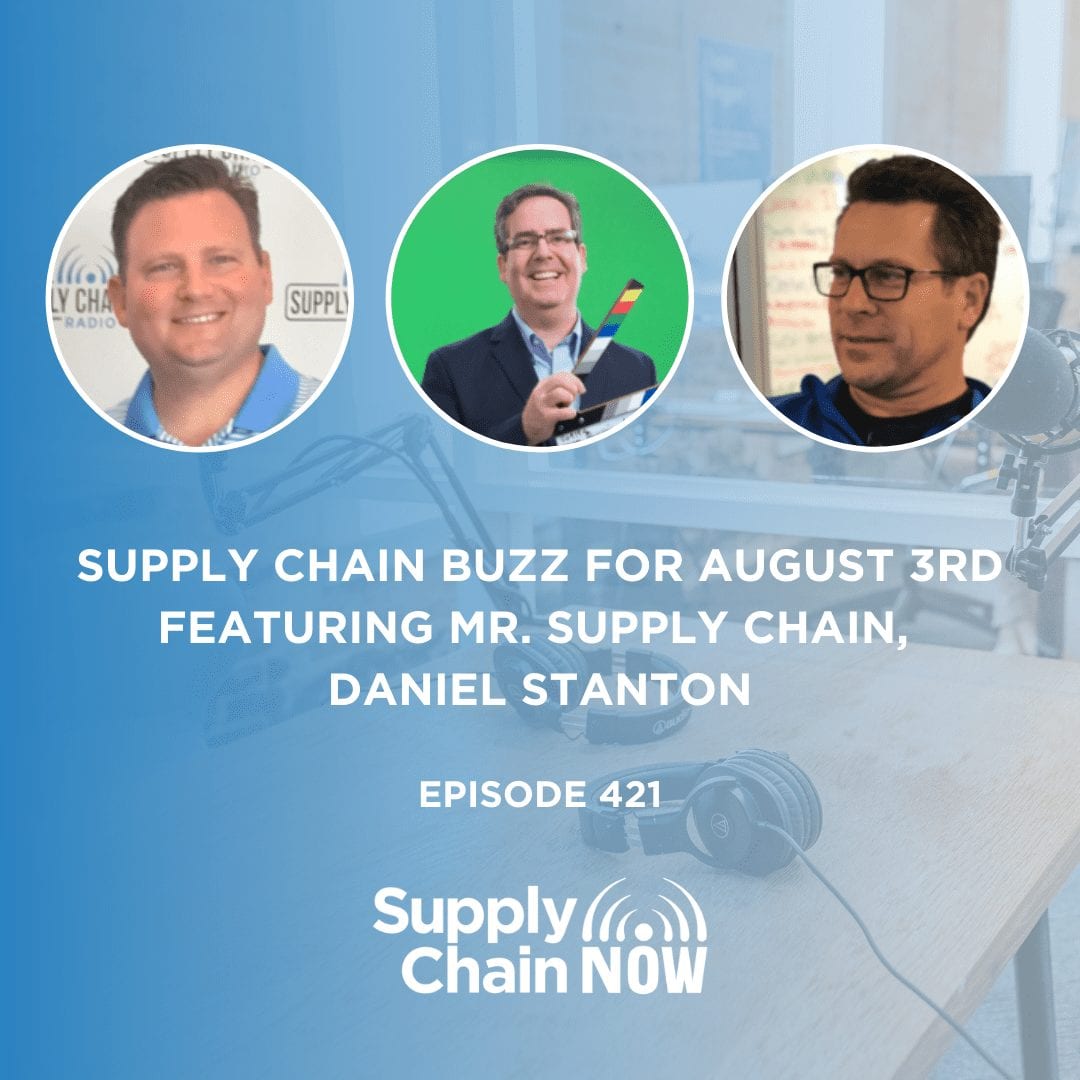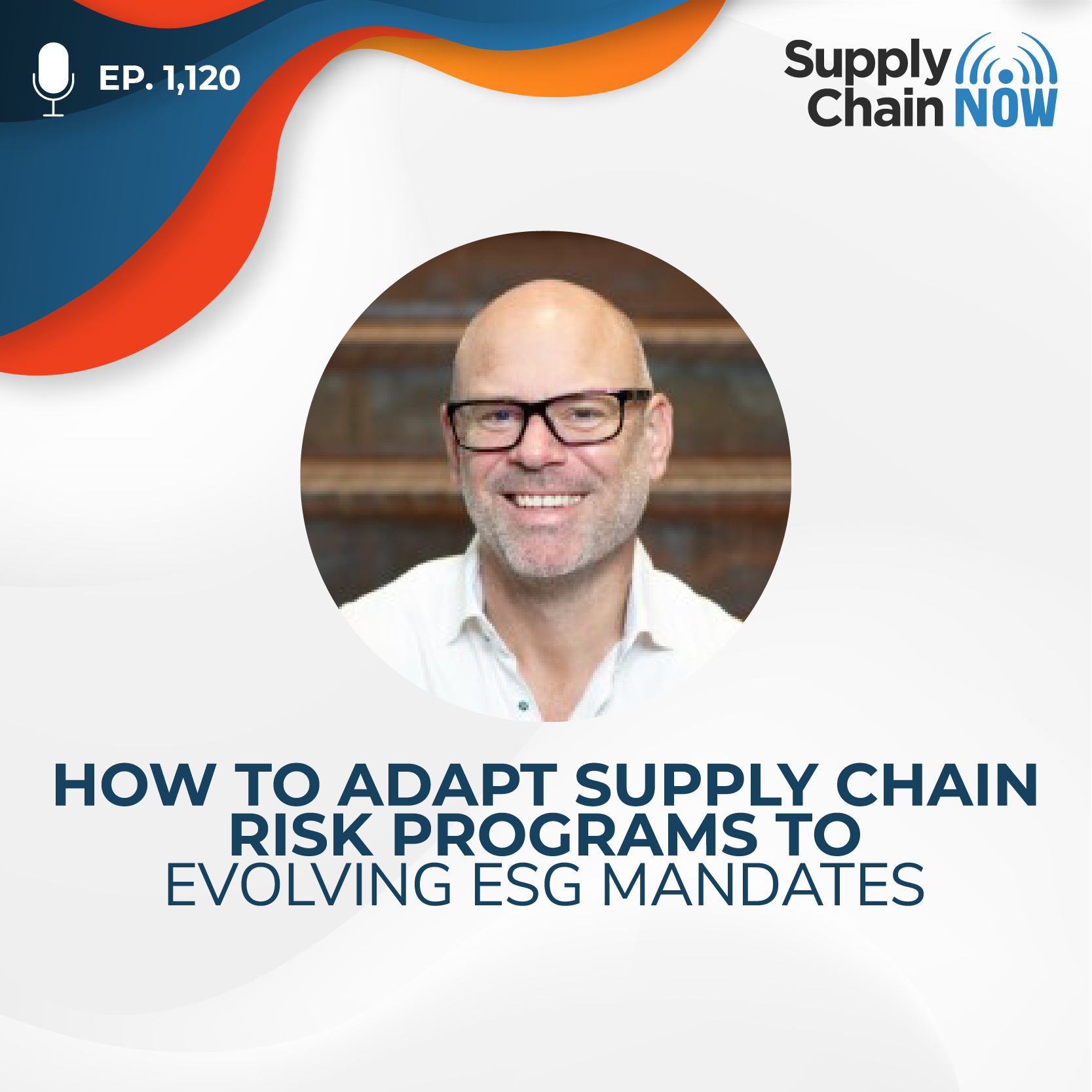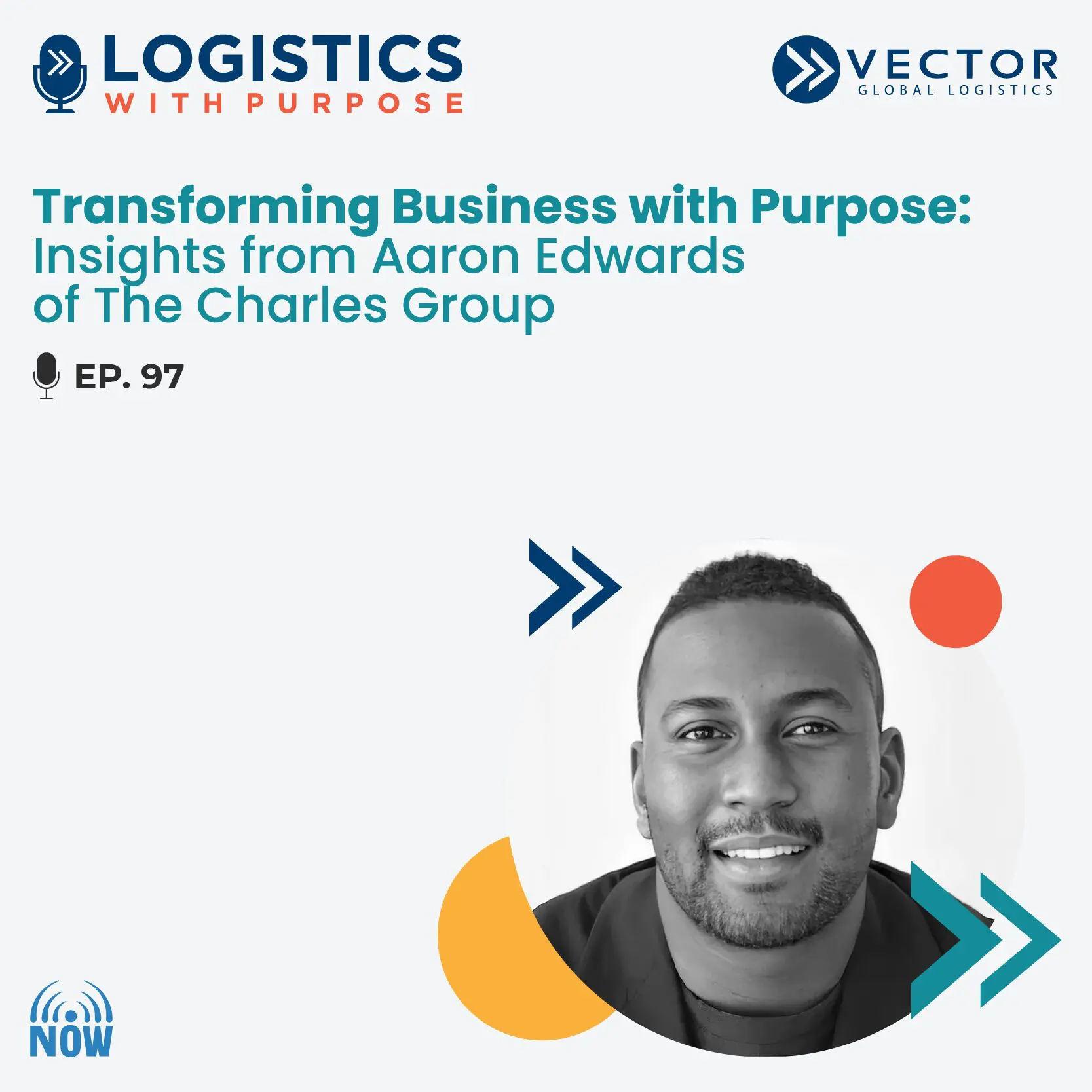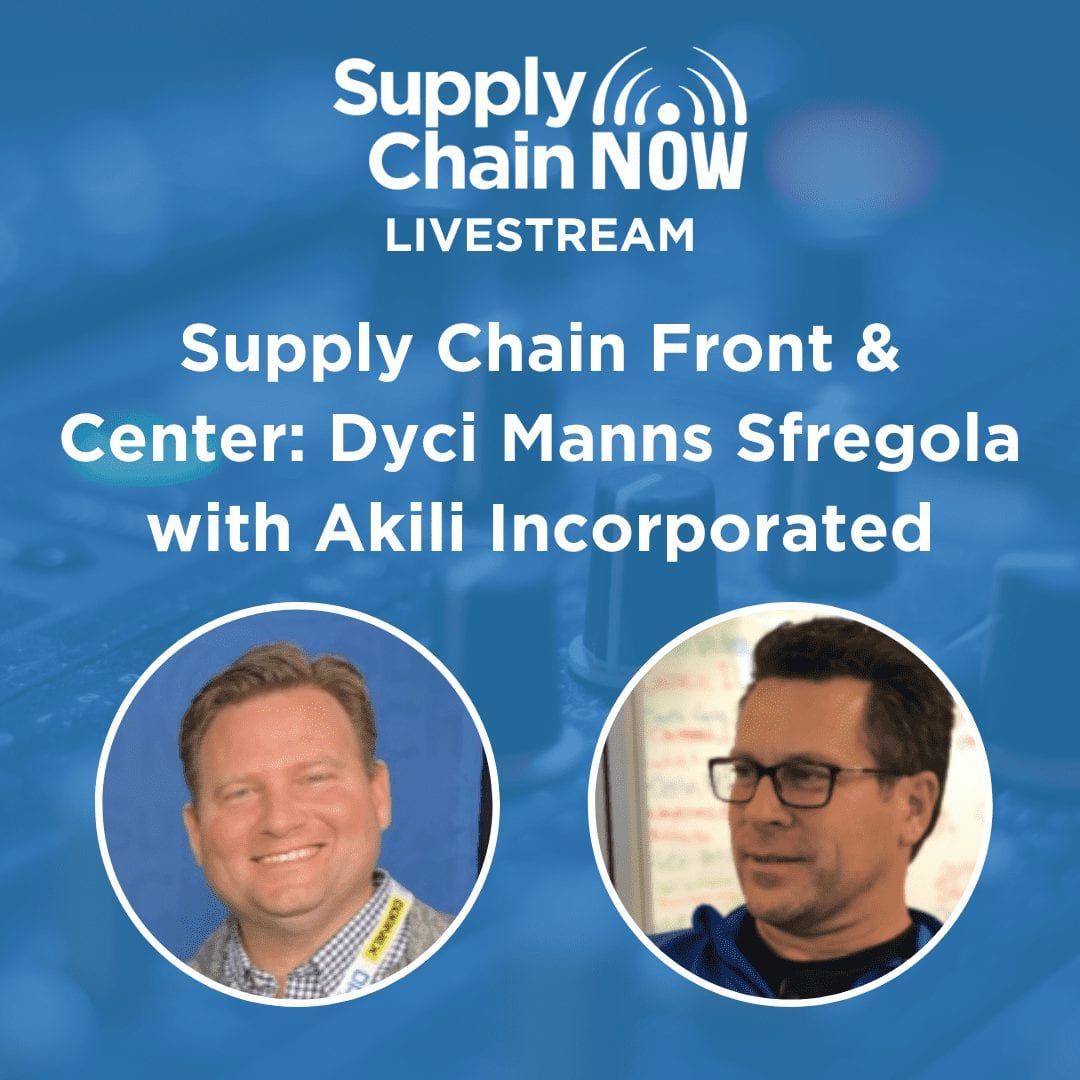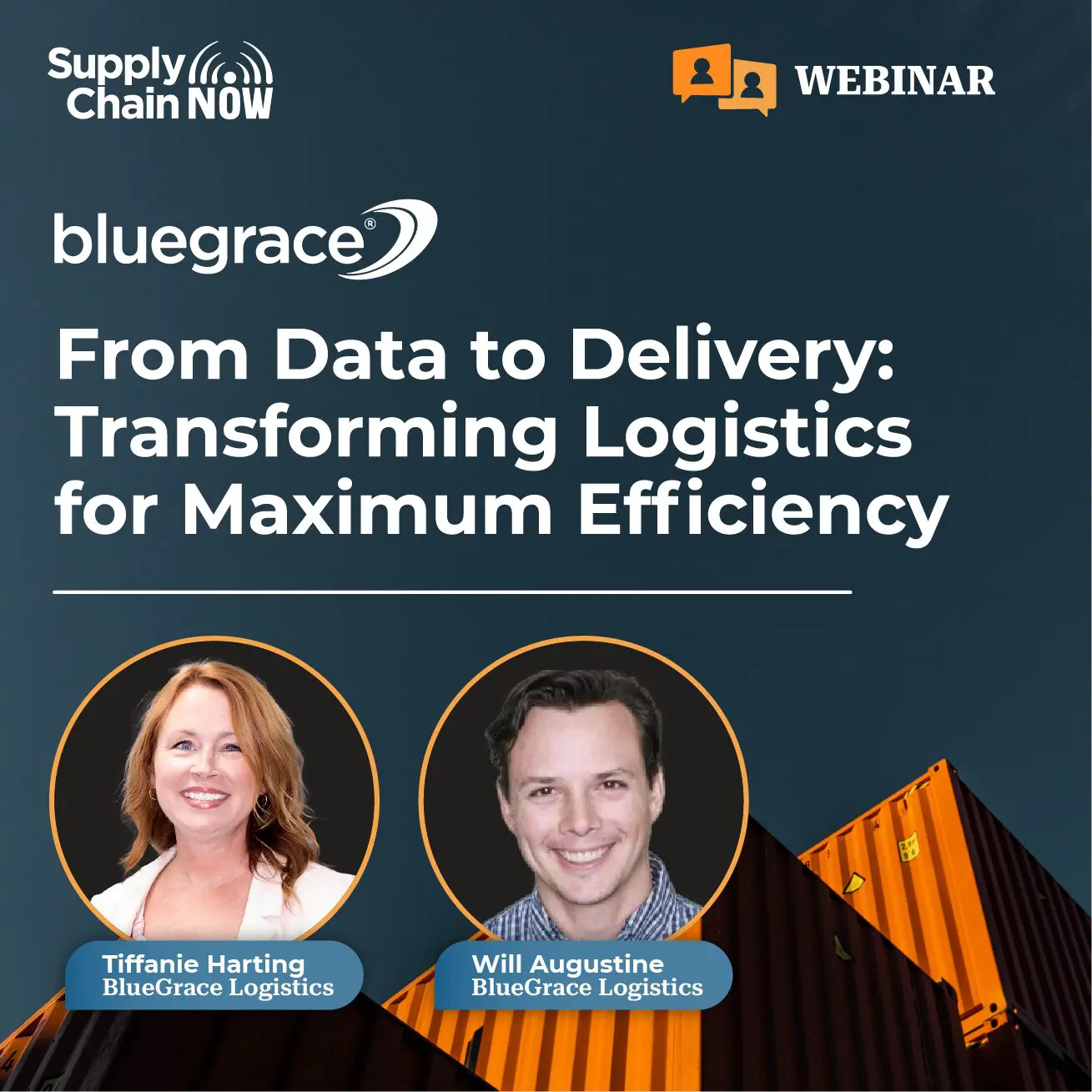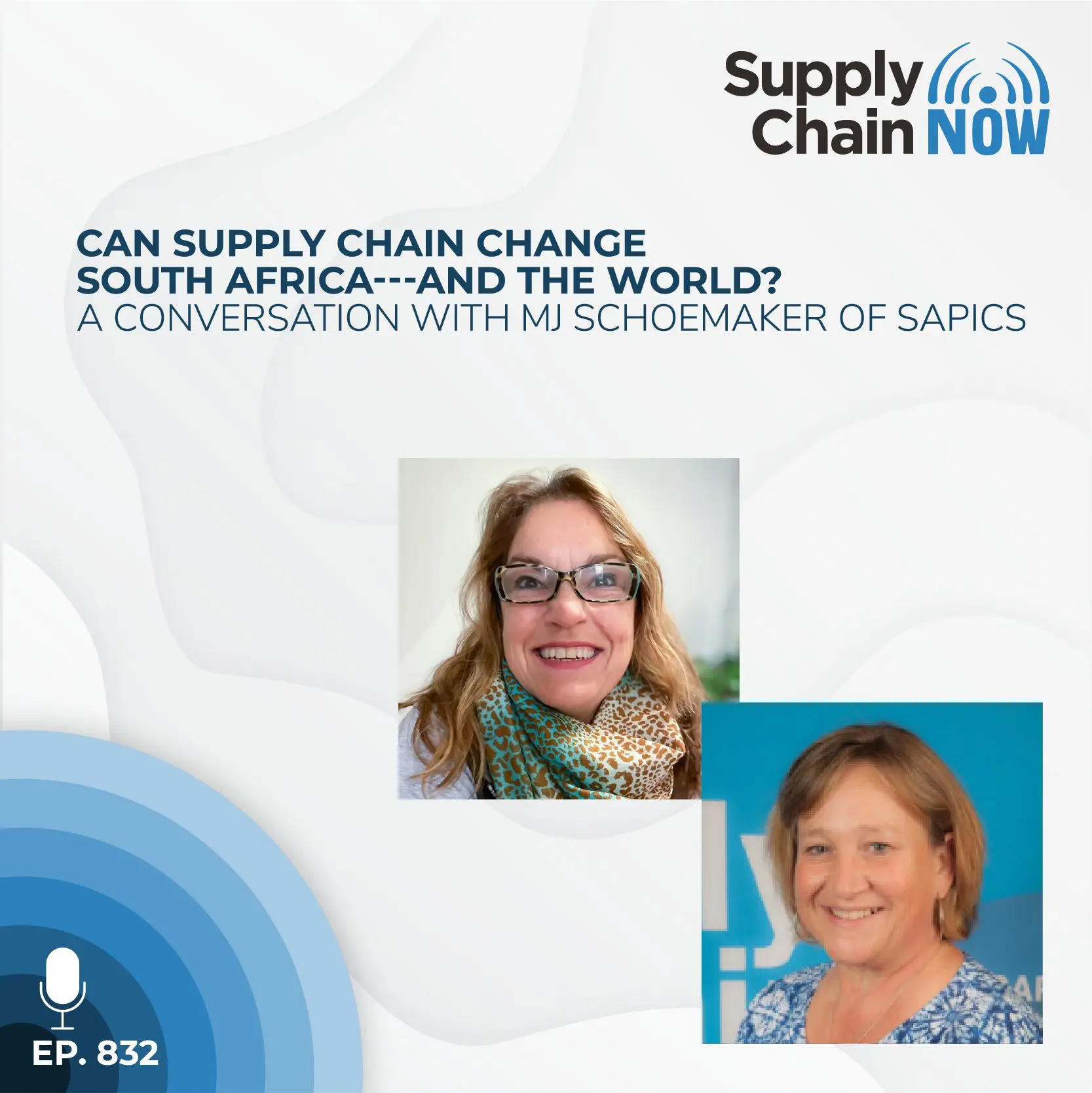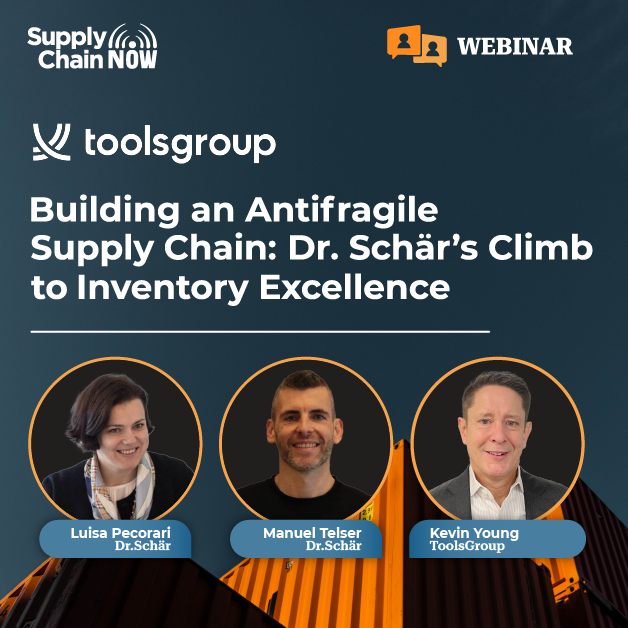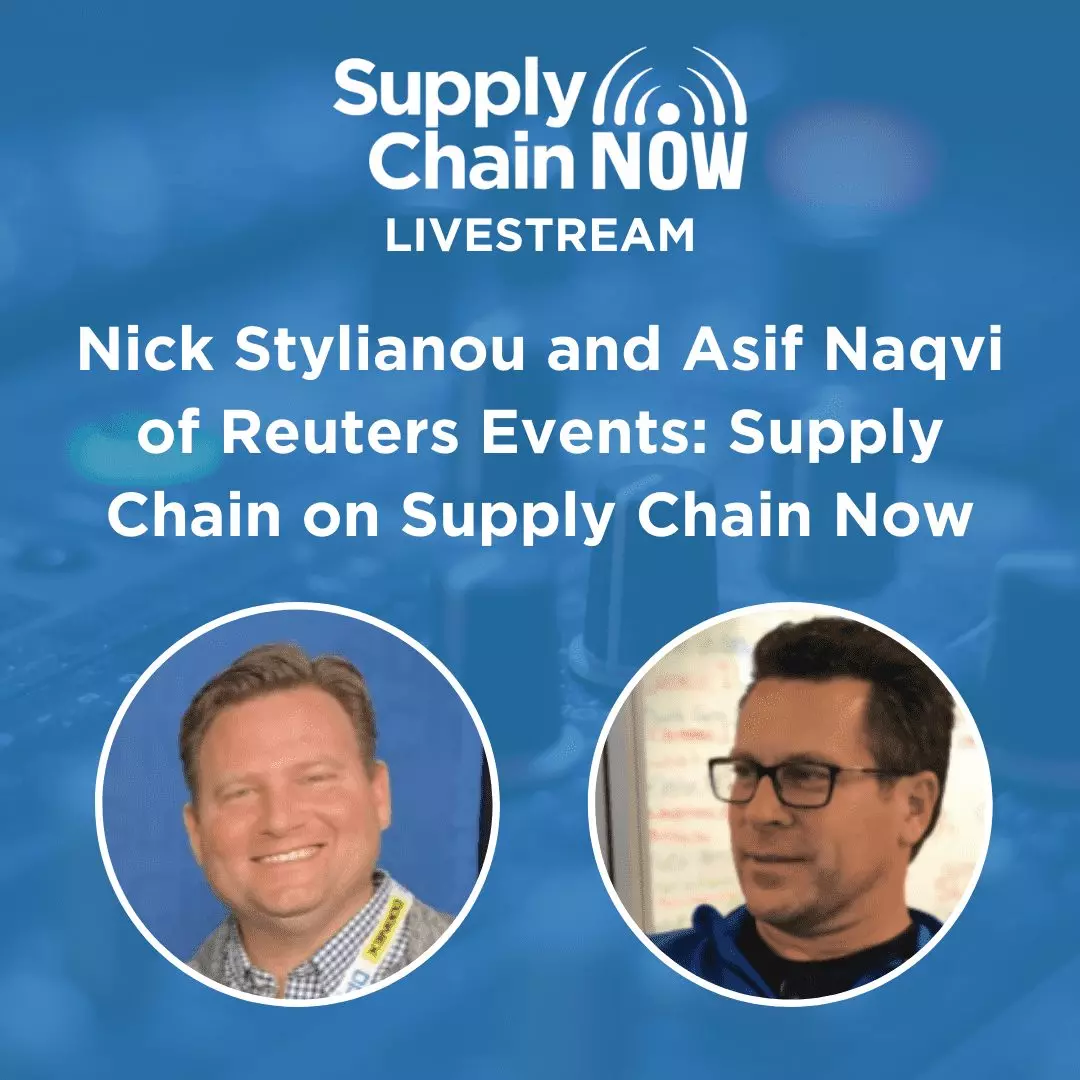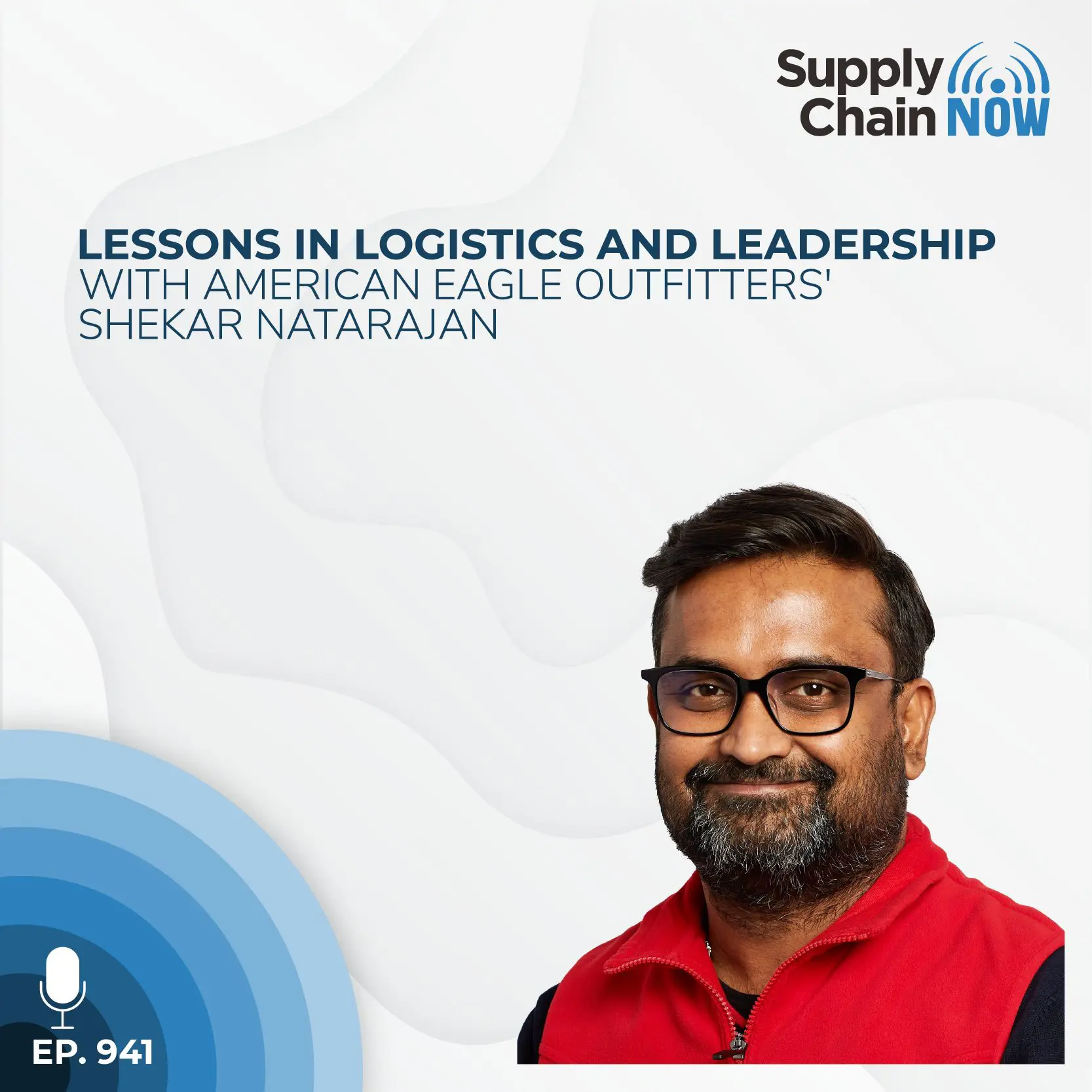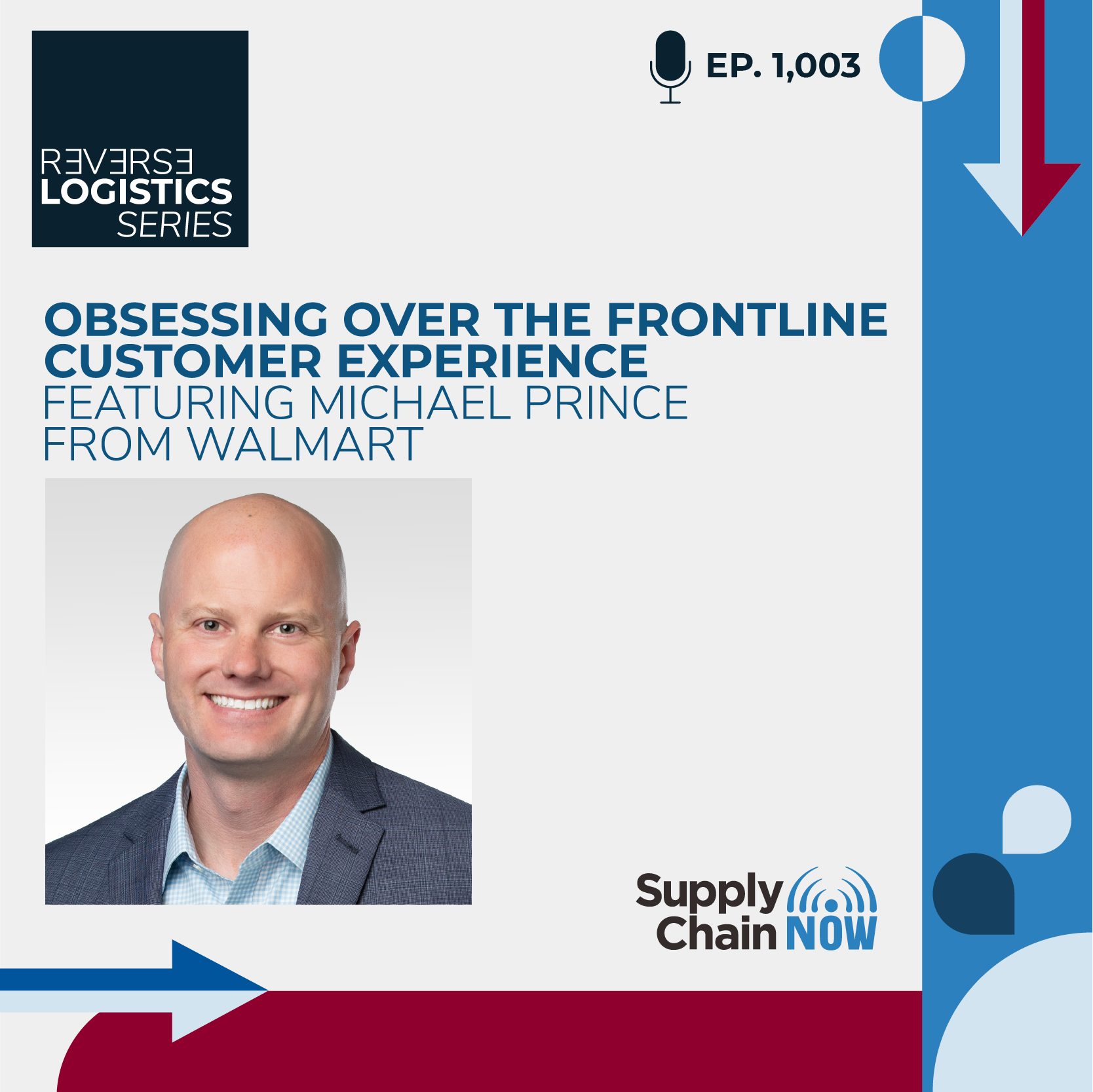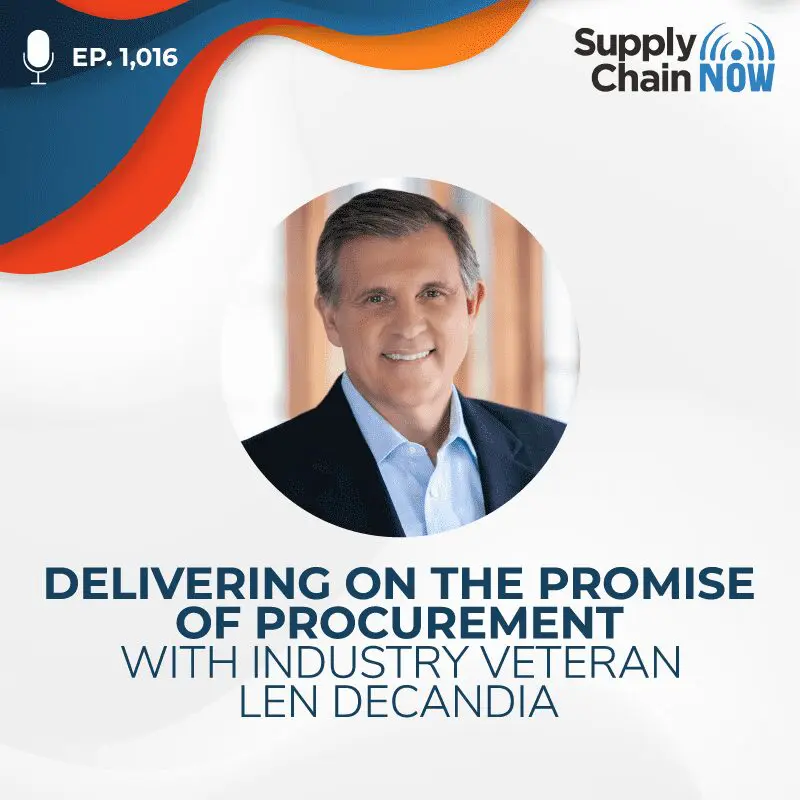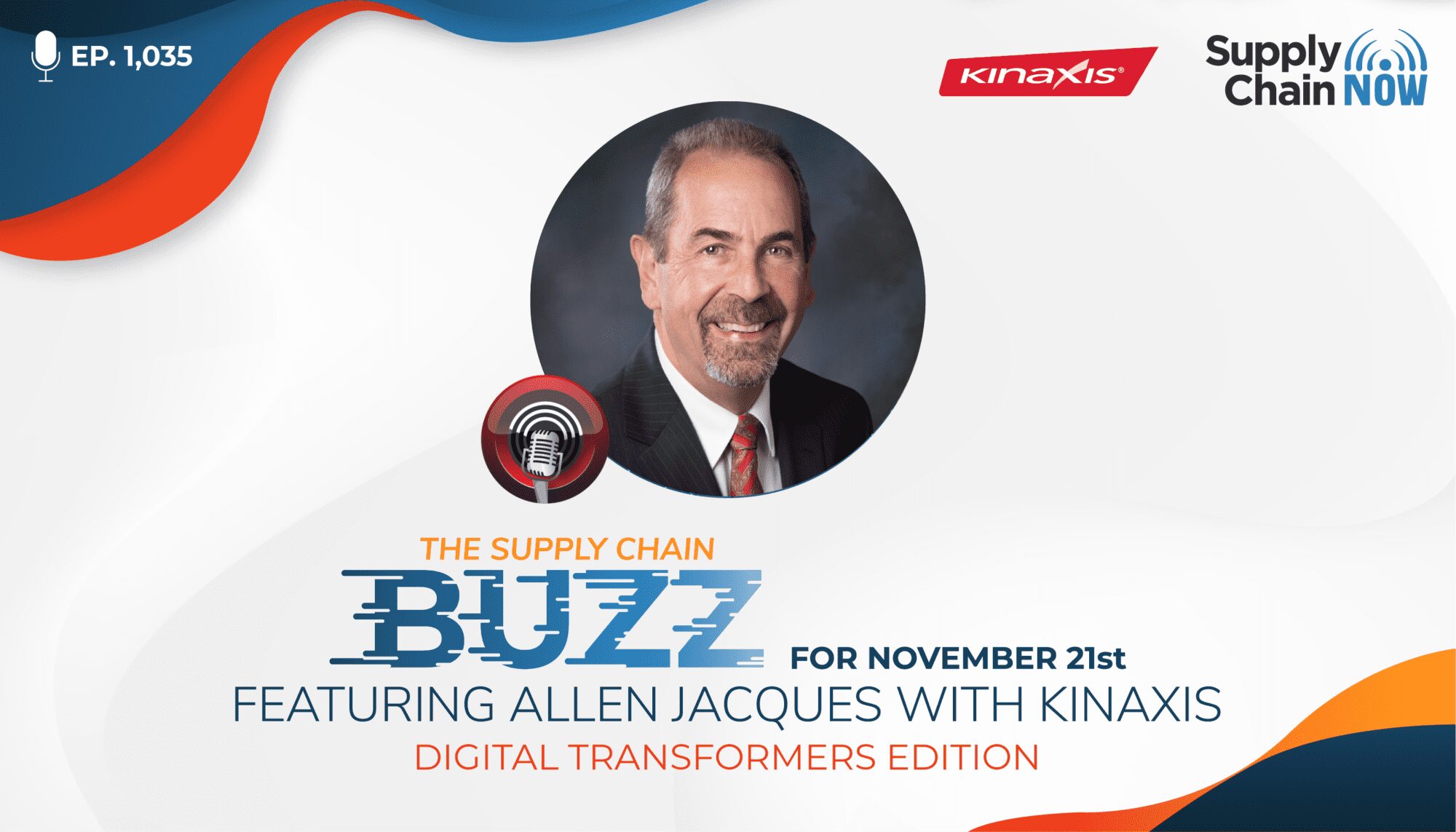
Do you want your suppliers and contract manufacturers working for you, or do you want them working with you?
-Allen Jacques
Episode Summary
The Buzz is back, and this week, Scott and Greg are joined by Kevin L, Jackson for the Digital Transformers edition focusing on all things digital supply chain. Tune in as they review this year’s top healthcare supply chains, the urgency of digital manufacturing and new offerings from Microsoft. And don’t miss special guest Allen Jacques from Kinaxis, who joins the trio to share his thoughts on the importance of strong partnerships with contract manufacturers, shelf life for buffer pharma inventory and how Kinaxis is infusing supply chain planning with added intelligence.
Episode Transcript
Intro/Outro (00:00:03):
Welcome to Supply Chain. Now, the voice of Global Supply chain Supply chain now focuses on the best in the business for our worldwide audience, the people, the technologies, the best practices, and today’s critical issues, the challenges and opportunities. Stay tuned to hear from Those Making Global Business happen right here on supply chain now.
Scott Luton (00:00:30):
Hey, good morning, good afternoon, good evening, Scott Luton, Greg White and Kevin L. Jackson here with you on Supply Chain. Now, welcome to today’s live stream, Greg. How you doing?
Greg White (00:00:40):
I’m doing well, Scott, my heart and my heart, I love this team.
Kevin L. Jackson (00:00:46):
<laugh> also,
Greg White (00:00:47):
My heart can’t take another game like we’ve had the last three of the last four weeks. Holy macro. Anyway, it keeps us alive, but I do feel like at times it, it can, uh, affect our lifespan.
Scott Luton (00:01:03):
Well, you know, uh, Kevin,
Kevin L. Jackson (00:01:06):
I’m sorry. I I have nothing. I I have nothing to say. We, you know, you’re only worried about football. We’re worried in Washington about investigations <laugh> about
Scott Luton (00:01:21):
And a lot more. That’s right.
Kevin L. Jackson (00:01:22):
If we’re gonna have a team, um, we can’t even look at football. Oh, we, we did Window. I can’t <laugh>,
Greg White (00:01:29):
You
Kevin L. Jackson (00:01:30):
Know what? But, you know, Congress
Greg White (00:01:33):
Tell you, Kevin L. Jackson, I, two things that I think are great for Washington, for the Commanders, which is a name that I am really, I mean, I’m really starting to, like, I’m digging that name. Yeah. One Taylor Heineke, who always has a particular move, maneuver in every game to come up with something amazing. So, I have coined the phrase, Heineke Maneuver. Um, and also the Snyders might be out of NFL football forever, could be the greatest gift that Washington ever gave America. Ok. Well, maybe, maybe George Washington,
Kevin L. Jackson (00:02:08):
Maybe. Well, you know, it wouldn’t be, it wouldn’t be Washington if it wasn’t a congressional investigation on, so I guess that’s why
Scott Luton (00:02:16):
Well just look on the bright side. Both y’all could be Falcons fans, uh, instead of your respective team. So, uh, but then,
Greg White (00:02:24):
Hey, how about Marcus Mariota? I mean, giving it up for the team?
Scott Luton (00:02:29):
Yeah. Well, we’ll have to more at 11. We’ll just say, uh, more NFL analysis at 11. But regardless, folks, Greg and Kevin, always a pleasure. Today is all about the supply chain. Buzz comes at you every, uh, 12 noon Eastern time every Monday. It’s the Digital Transformers edition of the Buzz. Yes, of course. We’re, we’re gonna, we’re gonna share some leading stories, movers and shakers across global business. And today, Greg and Kevin, we’ve got a special guest joining us. Alan Jacque with Connexis. Really have enjoyed some of his thought leadership, uh, that we’ve come across over the last, uh, recent months. And again,
Greg White (00:03:07):
I’m just honored to be allowed to be a part of Kevin’s
Kevin L. Jackson (00:03:17):
As a park. Why do we have this Scott Guy here about way? Oh, whatever. You kidding me?
Greg White (00:03:22):
You and I have the mic by ourselves before, and there’s very good reason. And they include, include congressional investigations as to why we are not allowed to ourselves.
Kevin L. Jackson (00:03:33):
Yeah, absolutely. Where is that tequila,
Scott Luton (00:03:36):
Man? What’s in the water this morning, man, y’all got
Scott Luton (00:03:40):
Serious buzz. Bringing it, uh, bringing it today. All right. So let’s, we’re gonna say hello to a, a few folks in just a minute, but we wanna remind everybody, Hey, we wanna hear from you throughout the next hour. We’re gonna be talking through a variety of topics related to global business, global supply chain, and we wanna hear from you throughout the hour. Okay. Before we get started, Kevin and Greg, let’s say hello to a few folks. Of course, big thanks to, uh, Catherine and Amanda behind the scenes, helping to make production happen. Uh, Chantel and Clay, the whole gang, uh, Shahi tuned in from uae. Shahi, great to see you as always. Uh, gene pleasure. Old Geno, Greg and Kevin. Yeah, great to see you.
Greg White (00:04:20):
We shoulda never told us that he goes by that.
Scott Luton (00:04:22):
That’s right. Uh,
Greg White (00:04:24):
I’m gonna make him change his LinkedIn
Scott Luton (00:04:26):
<laugh>, Shelly Phillips is back with us. Shelly, uh, Kevin and Greg has been dropping some serious knowledge on our streams. We love that, as has, uh, Lamar, and saying, so I really appreciate what they bring to the table.
Greg White (00:04:42):
And it’s a lot. I mean, seriously, if you follow our commentaries, our posts, or any of these shows, I mean, they’re, I mean, they both, and lots of others, of course, bring a ton of knowledge. It’s great to have that additional perspective on, on what we are talking about.
Scott Luton (00:04:58):
Absolutely. Um, yeah, you,
Kevin L. Jackson (00:05:00):
You know, and I, I like to also shout out to, uh, followers. I mean, we’re getting close to a thousand followers on the, uh, digital Transformers, uh, LinkedIn site. Thank you.
Greg White (00:05:14):
Yeah. That’s awesome.
Scott Luton (00:05:15):
It’s one of our newest sites. So it’s been, uh, Hey, I knew it was coming. Kevin, youre rock and roll star man. Um, so, uh, but I do wanna point out, uh, David Glover. So yesterday, the World Cup began, right? Today, the US men’s national team kicks off their, um, cup experience against wells at two o’clock mm-hmm. <affirmative>, yeah. Eastern Times. So David will keep our eye on, uh, eye on the Matt Chair Lit this afternoon. Okay. Greg and Kevin, are we ready to get get started? We’ve got, again, we’ve got Alan Jacque with Conaxis joining us about 1225, and we got three stories. We gotta work our way through, between now and then. Y’all ready? Let’s go. Yes, sir. All right. So let’s do this. So, up first, uh, I wanna talk about healthcare, healthcare, healthcare. So, Gartner recently announced its healthcare supply chain Top 25 for 2022, and wanna offer up our big congrats to the top ranked Cleveland Clinic, um, as well as a continued success of the Mayo Clinic and Intermountain Healthcare, who both maintain their prestigious masters ranking.
Scott Luton (00:06:20):
So you can see there on the graphic, uh, you got a top whole top 25 there. Cleveland Clinic, number one, banner Health, number two, Corwell Health number three. And congrats to each of these folks, uh, and their organizations. They’re, um, supply chain pro professionals for, uh, taking care of all of their, um, stakeholders and patients and, um, ecosystems there. So, congrats to especially the top ranked Cleveland Clinic, uh, Greg, when you think of healthcare supply chain, um, you know, to some degree, I think maybe, uh, the supply chain community doesn’t, doesn’t, uh, recognize what these folks are doing as much as other aspects of global business perhaps. But as we know as patients and as recipients of the service, we recognize them. Your quick thoughts, Greg,
Greg White (00:07:07):
Well, we either recognize this, recognize it, or we don’t recognize it. But either way, we live or die through it. <laugh>,
Greg White (00:07:16):
Right? I mean, I think, um, it’s underestimated and, and in the general public, but I can tell you, having worked with a lot of, of healthcare companies and healthcare distributors who provide goods to these hospital systems and things like that, that they take it very, very seriously. And it, and it is, and they acknowledge frequently and repeat constantly that it is literally life or death, right? So, um, I think it’s important to understand the sophistication with which some of these operate and the incredible, uh, effort in some cases in the absence of sophistication that they have, or in the absence of technology or other enabling capabilities that they have to make this happen one way or another by hook or by crook.
Scott Luton (00:08:06):
<laugh>. Well said, Greg. Uh, Kevin, your quick thoughts.
Kevin L. Jackson (00:08:10):
Well, when you think about the healthcare, um, supply chain, uh, think about, you know, what they have to do after the product is delivered. Okay, <laugh>. Cause you know, you don’t, you don’t just go and, and, and get medicine and just go away and buy your next, uh, medicine that, um, uh, continuing monitoring, it’s part of the supply chain. It’s information. They gotta know that something delivered to you that is doing what it needs to be, needs to do. That you don’t have to change that. You don’t have to update it. And, and think about it as we transition into, uh, telemedicine, it’s, you know, the, the end points are your house. It’s, it’s everywhere. Um, so to be a leader in healthcare supply chain, it’s, it’s more than just any supply chain.
Scott Luton (00:09:13):
Yep. Stakes are stake as, as you and Greg point out, stakes are high. And, you know, the last few years, of course, um, the whole healthcare community, um, you know, one of the several lines of the pandemic has really brought their stories to the forefront. So, congrats everybody. Uh, we, we all appreciate all the great work and, and, um, expertise and service and blood, sweat, and tears that you’ve put into, uh, delivering healthcare for all. Okay. Moving right along. I wanna hit this next story here. So, Kevin, as we all know mm-hmm. <affirmative>, uh, all things digital, continue to transform supply chains everywhere. This store here from our friends at DBS Interactive focuses on how digital is shaping one of our favorite industries, the manufacturing industry, <laugh>. So, Kevin, tell us a little more. Yeah.
Kevin L. Jackson (00:09:59):
So, you know, the, the pandemic really amplified the vulnerabilities, the structural vulnerabilities of the global industrial supply chain, uh, the shortages for of everything, right? And we still are kind of recovering, uh, from that, right? Mm-hmm. <affirmative>. Um, but during a covid crisis, the most challenging needs were, were largely met, uh, stretching, um, the, the power and reach of the internet to connect to buyers with manufacturers. But it’s really affected, uh, about four specific areas, right? In research and development, product design, digital has enabled r and d through innovations such as simulations and, and the digital twins or digital copies of actual physical products. Uh, in procurement. Procurement is, is more than just traditional sourcing strategies and, uh, research for negotiating pricing.
Scott Luton (00:11:07):
Kevin, really quick, as Greg, uh, as we learned recent weeks, it’s more than three bids in a cloud of dust, right? Procurement has changed dramatically. That’s,
Kevin L. Jackson (00:11:17):
Yeah, we, Kelly, right? Do p for that answer. But you really have to, uh, with digital, you can have, make better decisions and ensure that you’re spending wisely. Uh, and in manufacturing and, uh, production way products are designed and fabricated, used, operated, and serviced post sale has, has changed tremendously. And when you are looking at something that may be considered bland and boring, like warehouse and logistically, um, you know, typically it’s just about lean warehousing, you know? But now, uh, digital technologies are being driven by artificial intelligent and predictive analytics model. So you can do things like footprint optimization, intelligent routing, and intelligent sourcing.
Scott Luton (00:12:20):
Greg, some of your thoughts there.
Greg White (00:12:23):
Yeah. Um, I often wonder how companies ever operated other than a warehouse the size of a garage without
Kevin L. Jackson (00:12:33):
Technology,
Greg White (00:12:33):
Right? I mean, yeah. Um, I mean, you know, I come from a retail world where we had a warehouse, man. I mean, and we were kind of late to the party. We had a warehouse management system in 1991. It was just a baby then. Um, and I mean, we were literally the very first implementer of, of a product that Manhattan Associates, which is a well known, uh, warehouse management company, um, can’t even remember what the heck it’s called, but seems like they had peak or something in the name of it. Pkms. That’s what it was. Ah. Um, and, um, and that was like 1991 or 92. And manufacturers have to some extent resisted or just barely existed with so many manual processes, and so many non-digital solutions really reflects on two things in, in their segment of the supply chain. And that is one, their gross margins are truly gross in all capital letters.
Greg White (00:13:38):
Net margins are, um, ab would be abhorrent to most of us. You know, for instance, whereas a retailer, we as a retailer made three to 5% net margin after taxes. Our manufacturers routinely made between nine and 25% net margin after taxes. So they’ve been able to be sloppy for one. They’ve also been, had the plausible deniability of having distributors and retailers out in front of them facing the customers and taking the bullets. And believe me, as a retailer, I can assure you of that, taking the bullets from the consumers for things being out of stock or being late, or being excessively costly or of poor quality, all of that. But since the great toilet paper shortage of 2020, everyone understands all those aspects of supply chain. And as I say, repeatedly, there is no to hide. And now these not only should and should have 30 years ago, advanced their supply chain to the level that, that Kevin is talking about, or maybe not to the level Kevin’s talking about, because the robust data that’s available today was not available then, but at least steps towards that were available 30 years ago. And they’ve as assured many of those opportunities,
Greg White (00:14:55):
Transformation has to happen for them because now it’s their brand equity that’s at stake, not just profitability in the supply chain or gross or net margin. It’s the identity of their company that’s at stake. They have the money to do it. They just have to commit to it. And they have to now catch up with industries that we on. You know, we, consumers have long thought of as laggards. And in fact, the laggards are the leaders, the retailers and distributors have far more advanced supply chain systems and digital capabilities than most manufacturers do. So there’s a lot that can be learned throughout the supply chain. It’s time that manufacturers do so, and they have skipped three generations of technology to this level, which gives them a huge advantage, frankly, because all of those incremental things that we learned from p pkms and all the subsequent systems that we added over the last 30 years, my gosh, it’s been 30 years,
Scott Luton (00:15:57):
<laugh>. Um,
Greg White (00:15:59):
We’ve suffered the slings and arrows of that growth in technology. And now that it is a quantum leap from where they are, it’s also a quantum leap from where we started. And they don’t have to go through all that painful growth of technology and data and can basically leap to the top of the food chain.
Scott Luton (00:16:17):
Well said. Right?
Kevin L. Jackson (00:16:18):
I think it’s more than their identity, though. It’s their existence. Cause as all products and services transition to digital, if you, if you don’t, um, leverage its advanced technology, you’ll no longer exists.
Scott Luton (00:16:32):
That’s right. Uh, I was gonna say, uh, uh, quantum leap, you said there five times or so, Greg, great TV show. Uh, it’s been rebooted, but hey, we we’re just kind of talking about how digital is shaping the manufacturing industry. And I think one important thing to also point out is, is the, the, is the newfound visibility that we’ve seen across global supply chains in recent years. How we’re applying that to our, your entire supply base, right? For operational reasons, but also for some of the brand risk, Craig, due to some bad actors and, and some of the things that we, we all know have been, have been going on. Yeah. Uh, modern slavery and, and other things. So, hey, that business leaders gotta take advantage of, of how digital is shaping and opportunities. It’s really opened up outside the four walls. So, good stuff there, Greg and Kevin. Um, okay. We’re gonna hit one more, uh, news store before we bring our, our special guests on a, uh, Alan Jos Jo, I’m sorry, Alan Jo with Canis is joining us here. Yes.
Greg White (00:17:31):
Is silent cause it’s French. And, and they love to throw in silent letters here and there. Just to me, just to prove that we’re all
Kevin L. Jackson (00:17:38):
Idiot.
Scott Luton (00:17:40):
Wait, let’s, let’s cover this development here. Uh, so Microsoft is making some news as the company is rolling out a new supply chain product in tandem with customers such as KRAS and Daimler. So Kevin, tell us more here.
Kevin L. Jackson (00:17:55):
We talk about digitalization. So Microsoft now has they taken as supply chain platform, and they’re harmonizing, harmonizing the data estate to introduce the command center, uh, for, um, enterprise supply chains. The enter the supply chain center is designed to work, uh, natively within organization, supply chain data and applications with built in collaborations, supply and demand insights and order management. Okay. And, and they are making it really easy for customers to realize the value of the Azure Microsoft Cloud for their supply chains. Um, so it provides the building blocks across Azure Dynamics through our Dynamics 365 Microsoft teams and the power platform for customers to develop or independently adopt capabilities, uh, for their supply chain needs. Um, and, uh, if you don’t mind a, uh, uh, I, I’d also like to basically shout out to, uh, Microsoft as one of our newest customers. And the upcoming, uh, series will be delivering.
Scott Luton (00:19:22):
Very cool. Uh, a lot of good stuff there going on. Greg, your thoughts around what Microsoft just rolled out?
Greg White (00:19:27):
Yeah, I think it, I think it’s great that they have developed this platform. You know, they have evolved their capabilities from literally having no accounting, finance, e r p, whatever you wanna call it, capabilities to accumulating three different significant technologies, um, division, uh, something that starts with an A, which I forget, and, um, great planes into this dynamic suite, which is a really robust, uh, technology suite. And they’re using that as a leverage point to connect all the companies that are connected or integrated into that suite to provide both point solutions. Which, it’s funny, it’s funny, we were talking about this, we’re talking about this today because I just had this commentary discussion today about mm-hmm. <affirmative>, how people think e r does supply chain. It doesn’t. And you need all these point solutions that are integrated to all these E So if you get a chance, take a look at my commentary on j and j Snacks, which is Sour Patch Kids, by the way,
Scott Luton (00:20:32):
<laugh>,
Greg White (00:20:33):
Using this as a catalyst and as a leverage point for companies to reach a bunch of these point solutions that are much, much more effective, go a lot deeper, and have a lot greater capabilities than an E R P could ever hope to provide. I think think having that kind of marketplace and, uh, you know, available to companies is really, really powerful.
Scott Luton (00:20:53):
Well said. Greg. Sour Patch Kids. Huh? Kevin, you a big fan of Sour Patch Kids?
Kevin L. Jackson (00:20:59):
You know, I, um, no,
Scott Luton (00:21:05):
I know all that good stuff,
Kevin L. Jackson (00:21:06):
<laugh>. I know where they’re, I have had ’em in my, yes.
Scott Luton (00:21:11):
Yeah, y’all check out, uh, going back to what we just wrapped there, uh, check out the Microsoft News from our friends there at Supply Chain Dive. Learn a lot more about, uh, the recent developments.
Greg White (00:21:22):
I wonder they had as much fun talking about WWE with Kraft Hez as we did
Scott Luton (00:21:27):
<laugh>. I, no, I doubt it. I doubt it. Um, alright, so right before we bring in our, our guests here today, I wanna share a couple quick comments. Uh, gene Pledger says, sorry, Greg, I wish I had a great story and how I got my nickname, but it’s what my friends have called me since before time and since my friends are here, was appropriate, was <laugh> is
Greg White (00:21:48):
Appropriate. And I that’s, I I really think you have enough friends now, Jean, that you could just change your identity. Just assume we’re all friends and change your profile. That’s just, how was that for a pitch line right there?
Kevin L. Jackson (00:22:00):
<laugh>?
Scott Luton (00:22:01):
Just keep banging the drums.
Greg White (00:22:02):
I just wanna see if he’ll do it.
Scott Luton (00:22:06):
Um, now Shelly is going back to the, the warehouse comments earlier, Greg, that was impressive. I had a spiral notebook, a credit card machine, and a label printer back, I guess those times.
Greg White (00:22:17):
So I do have, thank you. First of all, Shelly and I do have to acknowledge that what was then called Northern Automotive. Now Riley Automotive, we were way ahead of, of our time. I think I, I didn’t really realize it because it was one of my first jobs, so mm-hmm. <affirmative>, you, I was kinda young and dumb, but I, um,
Kevin L. Jackson (00:22:37):
You were never dumb. You may have been young at one time, you were never
Greg White (00:22:43):
You, that’s tequila for you <laugh>, um,
Kevin L. Jackson (00:22:48):
<laugh>.
Greg White (00:22:50):
But, but it’s possible that we were ahead of even retailers. But even since that, right? I’ve seen so many retailers, I’ve done 2000 plus technology implementations in my life
Kevin L. Jackson (00:23:00):
Wow.
Scott Luton (00:23:01):
Man. And lived to tell about it.
Greg White (00:23:05):
Um, and I’ve seen the, that level of sophist sophistication in retail, and I’ve seen it continue to grow and it, and it distribution even, which is almost a forgotten part of the supply chain. But they have some incredibly advanced capabilities. All of that tied to that low, low margin, they have to be super efficient because their gross and net margins are so low and under constant attack by both the consumer mm-hmm. <affirmative> and their suppliers, which are these manufacturers who make such incredible gross margins. So they had to be efficient way back when. Um, but yeah, it, I mean, it, there were plenty of people and I have seen plenty of people, and I’ve taken plenty of companies from using a clipboard or spreadsheets or, or something like that Yep. To an actual technology, which today we wouldn’t consider a digital transformation, but it’s at least a step in the right direction.
Scott Luton (00:23:58):
Okay. Okay. Good stuff there. One final comment, uh, from our dear friend, Tom Valentine, good old tv. Happy Thanksgiving to my awesome friends at SCN and all who serve in the logistics sector best to you and your families. Tom’s a great point, and, and all the best to you and your family. Uh, but you know, the, make sure you get that Turkey on my table, <laugh>. That’s right. All I gotta say, but Tom’s Thompson,
Greg White (00:24:21):
Costco this weekend, by the way. Right?
Scott Luton (00:24:24):
But kidding aside, to Tom’s point, the people that keep moving global supply chains ahead, you know, some, so many of ’em are, are gonna be working throughout the week, uh, including first responders, our our men and women in military, you know, serving that a lot of those folks aren’t gonna be home for the holidays. So, big thanks, all of those individuals and the roles they play. And Tom, great to see you. Um, okay. So Greg and Kevin, we have got a great guest with us here today. I wanna, uh, welcome in. Are y’all ready? Two thumbs up. Yes. Ready to dive in deep. This is gonna be good. Uh, I wanna bring in, uh, Allen Jacque, industry thought leader with Connexus. Hey, Alan, how are you doing?
Allen Jacques (00:25:06):
I’m doing very well, Scott.
Scott Luton (00:25:09):
It is so great to have you here. Uh, I’ve been a big fan of, of a lot of the thought leadership you put out there via articles and social and some, some events you’ve been a part of. So great to have you here with Greg and Kevin. So Alan, uh, are you ready for a fun warmup question here today? Oh,
Allen Jacques (00:25:26):
Boy. Yeah. But first of off, Scott, I wanna say I’ve watched a ton of your sessions, uh, never dreamed that I would be on one of them, and I can, I can only think of Wayne’s world. We’re not
Scott Luton (00:25:39):
<laugh>.
Allen Jacques (00:25:41):
Wayne
Greg White (00:25:41):
Should be us. A
Scott Luton (00:25:43):
Thank
Greg White (00:25:43):
You for joining us, man.
Scott Luton (00:25:44):
Wow, man. Uh, you’re too kind. I really appreciate that. And, uh, of course, a bunch of our friends over at Connexus, uh, uh, we love what y’all do over there and how you do it. Um, okay, so Alan, uh, I wanna start with, so what a great segue Wayne’s world, right? An iconic movie back in the day. So on, uh, tomorrow it marks the 27th anniversary of the release of the movie Toy Story. So released on November 22nd, 1995. It was the first major motion picture that was created completely by computer generated animation, and it changed the whole industry, right? So, with that as a backdrop, whether you’re a Toy Story fan or not, there’s been 27 sequels come out ever since, right? Mm-hmm. <affirmative>, I wanna start with Alan. We go, I’m oppose this to our entire panel, but what is your one of your favorite all time animated films? Alan,
Allen Jacques (00:26:38):
I would have to go to Japanese anime and say, how’s moving Castle? And oh, it was really one of my children who introduced me to that. And, uh, I I just, I just really fell in love with, um, that and, and the other movies that, you know, that they did,
Scott Luton (00:26:57):
Alan, it’s like the golden age of anime, what I understand here in recent years, right? Mm-hmm.
Allen Jacques (00:27:02):
<affirmative>, yes, absolutely.
Greg White (00:27:03):
Tons of people watching it. I mean, I, yeah, well have a niece who watches almost nothing, but specifically Korean anime.
Scott Luton (00:27:13):
Really?
Kevin L. Jackson (00:27:15):
Wow. Yeah. My, my daughter’s big and Japanese. Yeah. Well, anime.
Scott Luton (00:27:19):
So Kevin, let’s stick with you then. Uh, so beyond anime or maybe maybe part of the anime world, what’s one of your favorite all time animated films?
Kevin L. Jackson (00:27:28):
Well, you know, actually, uh, I would have to say The Incredibles <laugh>, maybe I’m going off the, yeah, maybe I’m going off the reservation here. But it, it, it seemed like it was, uh, that was the first like, animated movie that I saw that that really felt like it was real people <laugh>. Okay.
Scott Luton (00:27:55):
So the incredible
Kevin L. Jackson (00:27:59):
Is my, yeah, it was, you know, it was, it was, uh, very enjoyable. It was, uh, you know, it was sort of an adult movie animation, right?
Scott Luton (00:28:11):
Ok, right,
Greg White (00:28:13):
Greg. It was like, it was kinda like Warner Brothers. It had, it had a grown up message for kids, and the message was good too.
Kevin L. Jackson (00:28:20):
That’s a message, too,
Greg White (00:28:20):
A great, so I would say, uh, Incredibles is probably my number two, only to Aladdin and Aladdin, not because there was any like, real message there. I mean, there was of course, right? Mm-hmm. <affirmative> be yourself kinda thing. But, but just the pure fun, the explosive action, right? And, and of course, um, the great acting of, of that thing. I just, I keep going back to Aladdin. I was so glad my kids were young when Aladdin came out
Kevin L. Jackson (00:28:53):
<laugh>,
Greg White (00:28:54):
I had an excuse to watch that thing every single week. So,
Scott Luton (00:28:57):
Love it. Love it. Uh, I would throw in there some really, some, some older classic Charlotte’s Web. I love that as a kid. I still love the story there. Um, animal Farm, which, you know, dates back the story dates back from the, uh, late forties, early fifties in, in a great animated film that came later. I didn’t
Greg White (00:29:16):
Even know there was an animated film. Oh, it’s great. I read the book.
Scott Luton (00:29:21):
Uh, Leo Luton, ak my mom, uh, from Akin South Carolina Loves the Incredibles too. I love that. Amanda’s a big fan of Aladdin. Um, Amanda Also’s a big fan of Tangled and Frozen, and that those are, to your point, Greg, uh, really all three of y’all’s point. Cause you all kind of brought your kids into it. Um, and hanging out with my daughters in particular as we went to the frozen performance at Walt Disney World a couple years back, that was very special. Um, okay, so we gotta get down to work, uh, a and Greg and Kevin, right? No, and I wanna, uh, <laugh> work. Work. No, I’m allergic to that. This is supposed to be not no allergies. That’s right. All fun. Uh, so Alan, one of my favorite things that you do regularly is, is publish these articles, right? That more than whatever, 220 characters, whatever Twitter’s up to now. I mean, these are really deeper pieces. And a few months back, you wrote this one interesting article focused on changing the way we should think about contract manufacturing organizations. So, Alan, tell us a lot more here.
Allen Jacques (00:30:25):
Sure. Um, so just as a little bit of background, my whole career has been pretty much in the pharmaceutical space, most of that in supply chain, but I’ve also been on the manufacturing side, and I’ve worked with contract manufacturers pretty much from the beginning until recently when, uh, when I joined Connexus. And, um, and I’ve had, uh, I would say I’ve had the good, the bad and the ugly as far as experiences go with contract manufacturing. And, um, by the way, Greg, you wanna talk about, um, obscene margins? You have to come to my industry <laugh>. Yeah, no kidding. But, um,
Greg White (00:31:06):
Yeah, gross is in all capital letters in that industry, isn’t it out?
Allen Jacques (00:31:10):
Yeah. Yeah. They’re good reasons for it, but I won’t, I won’t,
Greg White (00:31:13):
Yeah, no doubt
Allen Jacques (00:31:14):
Won’t be defensive today. Um, so in contract manufacturing, it really, even the big pharmaceutical companies use contract manufacturers and, and they use them because they don’t wanna invest in technology, or they realize that they’re, they’ll never be the best at that technology. Uh, but you also see it in very small companies who are all virtual. They have no internal manufacturing. Everything is external. And so I, um, so I’ve, you know, I’ve kind of been in that world for a long time. And, um, I’ll talk about the good experiences. Um, so years ago, we, we were launching, or we had launched, uh, a multi-billion dollar product. And, and it was going through a growing stages. And at that time, we had a strategy that we would start out contract manufacturing, see how the product did, and then build our own facilities. And at that time, we, we had a contract manufacturer for what we called the drug substance.
Allen Jacques (00:32:15):
It’s a protein, it was a monoclonal antibody. And, um, and we worked extremely well with that manufacturer to the point that we were sharing information with them on what true demand was, how our markets were doing. Uh, we had another party who, at North America, we had rest of the world. So it was two manufacturers and that contract manufacturer. And we, we got to the point where we actually included that contract manufacturer in our s and O P meetings. Okay? So, you know, we had no reason not to give them full visibility, as, you know, to what was happening in their organization. And because that, I mean, this company, when they said yes, they meant yes. When they said no, they meant no, and there was never a maybe and they always delivered. Uh, we just had a very high level of trust between the two parties.
Allen Jacques (00:33:09):
And so I’m going back like 20 years ago, and to this day, I’m still in contact with three people from, from that contract manufacturing. And I, I haven’t worked with them, you know, in years. But, you know, that was kind of the level of relationship that we developed. And then, um, recently when I was with Leo Pharma, Danish Pharmaceutical company, um, we had another, uh, situation where we had internal syringe filling in capacity. And, uh, the market was growing. We were having some manufacturing issues, and we needed to go back to a contract manufacturer that we had discontinued several years earlier. So we had burned some bridges. Um, we were, we were in a really desperate, uh, situation internally. And at that time, I had responsibility for what we called external manufacturing at leo. Um, so basically the relationship had been managed by procurement in the past, but now we got back in the door, we started talking to them. It was very awkward, but finally they agreed to do volumes for us. And I decided, you know, from the very beginning, I was personally going to get involved in that relationship. I was going to be in every meeting. Uh, and I, I was at a VP level. So, you know, typically you would have several levels below you managing that. But this was so important that, that I got involved right from the beginning. I, I even did the minutes from all of our meetings in public <laugh>,
Scott Luton (00:34:44):
And that was must must read
Greg White (00:34:46):
Material. Yeah, I read that article. That was pretty impressive level of engagement right there.
Allen Jacques (00:34:52):
Yeah, because we, we really, you know, we really had a lot of ground to cover because of our past relationship. And so what happened was they start, we, we not only needed manufacturing volume, but we needed to introduce new fill sizes, which is a tech transfer and an approval process, you know, regulatory, we had to go to higher volume equipment, filling equipment, again, tech transfer, regulatory filings. And, uh, and we also needed to implement, uh, visual inspection, automated visual inspection at this contract manufacturer. So in the pharma world, every time you make a change like that, you know, you, you’ve gotta file it in all the countries where you’re selling that product, and you have to wait till you get approval, uh, before you can implement. So it became quite complex. We were very dependent on them for these projects. So, so I, I became very involved with the team.
Allen Jacques (00:35:49):
I became very involved on their side and knowing exactly what was happening with each of the projects, what the issues were. And then I developed a very close relationship with their head of industrial manufacturing for that company. Um, and, and I decided from the very beginning, I’m gonna be totally open, uh, with you. I’m going, if we make a mistake, you know, I’m going to tell you up front. And he returned that transparency and trust to me. And again, we developed a very good relationship. Um, you know, we, we would’ve phone calls when something was coming up. I never wanted it to be a surprise in a meeting. So I would give him a call ahead of time. And, uh, he wrote some very kind words to me in an email once that I, I will keep for the rest of my life. Uh, just wow, you know, saying that he’s never had that level of trust with us, you know, with a, uh, customer before. So
Scott Luton (00:36:45):
I love that. So, all, and I’m gonna get Kevin and Greg, you all to comment in just a second, but all of this, what Alan’s describing really rolls up into, uh, you know, changing, uh, how we do business in the status quo with, uh, contract manufacturers. And the biggest thing I heard there, uh, Greg and Kevin, is the abundance of transparency and all these other actions that really built, uh, extraordinary amounts of trust, um, you know, bring even to bring ’em into the sales and operations planning, uh, sessions. Uh, you know, how can we move mountains together? But, uh, Greg, get you to comment first on what you heard there from Alan.
Greg White (00:37:22):
Well, I mean, I think that’s so necessary, right? I mean, you have to treat a contract manufacturer. And Alan, if I’m co-opting your words, forgive me, but I mean, I feel this way too. I’ve probably just been prompted in this thought by reading your article, but, um, you have to treat ’em like they’re part of your internal team. Mm-hmm. <affirmative>, right? And you have to treat your internal team, your internal, let’s call them adjacent departments. I don’t wanna say silos, but if you, you gotta treat your in internal adjacent teams, just like they’re your team. No boundaries, right? Complete transparency, that openness and also understanding of, of each organization’s respective goals. It’s absolutely critical. So I worked with Henry Shine who had kind of a passport thing, where when you got hired on at Henry Shine, you had to learn what all of the adjacent departments did. And you, you created this incredible clarity of purpose by understanding what their individual goals are and how that contributes, or in some time, in some cases, you know, actually detracts from the overall corporate goals. And it allows you to reconcile that. But most importantly, it allows you to have that understanding, that promotes trust and allows you to feel comfortable with the transparency that Alan is talking about.
Scott Luton (00:38:42):
Yep. Well said Greg. Uh, Kevin, love to get your thoughts here.
Kevin L. Jackson (00:38:46):
Well, first of all, I mean, when you read that article, you, you, you think about, um, earlier times when everyone was in physical meetings, <laugh>, and that you would build these relationships one on one because you’d go to dinner or go to breakfast, shake hands, and, and it was really important you drink. It was always, it’s important to realize everyone was human and to, to reach out to that humanity, um, of your business partner. Well, in digital transformation, I fear many organizations and companies forget that even though you are building an ecosystem digitally, you still need to recognize the Humana of your partner, especially contract, um, uh, manufacturers for instance. So, you know, although it’s just email and it’s not a meeting or it’s, or it’s a web, um, meeting and not a physical meeting, you still need to realize that, you know, they’re people too. And you have to still build a relationship, um, um, across the wires. <laugh>. So, so, right. The story, the lesson from that article still rings true. That’s, that’s what’s important.
Allen Jacques (00:40:22):
Thank you, Kevin, about, you were talking about digital twins, but think about getting to the level of trust where you include suppliers and contract manufacturers as part of your digital twin. That’s where I wanna see things go.
Greg White (00:40:37):
Alan, I’m curious, how rare is what you described or what you did? How rare is that even today?
Allen Jacques (00:40:44):
Oh, that, I, I have no idea, to be honest, cuz my experience is pretty narrow in that world. But I think the, I mean, I’ve seen people treat suppliers and contract manufacturers transactionally trying to get the best price, you know, trying to push them on cost and everything. Uh, but I’ve always kind of believed that you have to, do you want your, you know, suppliers and contract manufacturers working for you, or do you want them working with you? Right? Everyone would say with, and the only other thing I would say is you can’t do it with every supplier, every contract, manufacturer. It’s, you don’t have to bandwidth. So you have to pick and choose.
Scott Luton (00:41:23):
Yep. Um, alright. So, and, and Alan, I loved, uh, as you kind of wove in certain parts of your story where some of those exchanges, and certainly the relationships are still so valuable to you today, kind of just as a human. I think that, uh, I love hearing stuff like that, so I appreciate you sharing, uh, that story. And folks, we dropped, you know, don’t take our word for it. We dropped the link to the article across all the social channels there, so you can read, um, a, uh, the full link of Alan’s experiences there, how we gotta change how we think about and act towards our contract manufacturing partners. Um, okay, so let’s move right along. We got this, the second topic here. So Alan, I <laugh>, I love this, this title. We’re talking biopharma and supply chain performance execution, the title of this supply chain, velocity and Oxymoron and Biopharma <laugh>. So Alan, tell us more.
Allen Jacques (00:42:14):
Yeah, this has not made me very popular
Kevin L. Jackson (00:42:19):
<laugh>,
Scott Luton (00:42:25):
Truth to power.
Greg White (00:42:26):
Yeah. Truth is not always popular,
Allen Jacques (00:42:29):
But I’ll, I’ll give you some good examples. So I, I started this article off by telling, uh, about an experience. So when I was living in Belgium, I worked for Baxter, which made blood bags, right? One of the biggest manufacturers, or actually the biggest for blood bags and other types of IV bags. And, um, we used to go and donate blood just so we could see the batch number on the blood bag, just so we could see, we knew the manufacturing dates. So alls we wanted to know was how, how long did it take for when we made that blood bag until it was used for a collection. And, um, and one of the guys, and I posted a picture recently on LinkedIn for my old team back then. And, and the person I’m mentioning is in that picture. Uh, but he came running into my office one day and he says, I just gave blood.
Allen Jacques (00:43:19):
And it was like in April, and he said the blood bag was manufactured in February, so it took two months, right? And he was just super excited. So this is going back a long time ago. We were really focused on cycle time and velocity and things like that. And a quote I really like is, um, I heard, uh, at a conference is cycle time is a single metric may be the best measurement of an organization’s health. And I heard that a long time ago. And I really like to go back to that, that quote, cause I really believe it. So then I got into the pharma world. So back then I was med devices. So then I got into the pharma world, and next time you go in, uh, to the pharmacy and get a prescription, look at the expiration date on, uh, what you get.
Allen Jacques (00:44:10):
And, uh, I had an experience once I was, I was taking Lipitor and I went in to get my prescription. I looked, well, actually, I was taking the generics. I won’t put any companies in the spotlight here. Um, but I, I looked at the expiration date. It, it had like eight months left on it, right? And I, I know that when that tablet was compressed, it had a three year shelf life. So what in the hell happened over the last almost two and a half years? Why did it take two and a half years from when that tablet, I mean, then you’re talking about basically packaging, you know, bottles, blisters, whatever, then distribution and all that. And, uh, and I see it all the time, look at, you know, when you buy an over the counter medication, look at, look at shelf life, and, uh, you’ll be really surprised, and I think it was Accenture years ago, identified like $46 billion of excess inventory just in the US healthcare sector. Geez. And, and you started off Scott by talking about the top, you know, healthcare companies and, and I, and that’s the reason, I mean, cycle times are long within a company, right? They’re, they’re variable. Um, but there’s a lot of inventory. There’s inventory everywhere. Everyone’s buffering against something. And, uh, that’s probably one of the reasons why the pandemic didn’t really impact, uh, you know, the pharma world as much as it did other industries. And and that’s
Greg White (00:45:40):
Time supply is basically what you’re saying, right?
Allen Jacques (00:45:43):
Yes, absolutely. Yeah. Yeah. So basically it boils down to anywhere you have inventory, guess what you’re eating into shelf life. And, uh, you know, and, and so when you look at that picture, so, and, and you know, the industry, they don’t really trust each other. You know, the wholesalers, the distributors, the manufacturers, everyone’s trying to get their piece of that huge margin. And, um, and you just don’t see the collaboration. Um, I think of what’s it called, c p r, collaborative Planning, forecasting and Replenishment. That’s a really old acronym. You just don’t see it, you don’t see that level of trust I was talking about on the manufacturing side. And, you know, this is a huge win-win and I could talk for another half hour about some of the technology that’s in place to allow that to happen, like serialization, track and trace technology that’s being implemented. Yep. So
Scott Luton (00:46:42):
Alan, uh, I really appreciate, um, what you’re, you’re bringing to the table here today. And, and, and really the, the, the first article, there’s some very strong common themes to this, uh, what you’re describing from biopharma standpoint. Um, Kevin, let’s start with you first, your quick comments on what you’re hearing Alan share.
Kevin L. Jackson (00:47:00):
Well, what I hear is cost, cost, cost. If people are buffering, um, how much cost is it to put that on a shelf in a, uh, a warehouse and how much cost is added to that Lipitor pill, uh, because you are paying for it sitting on the shelf for two years before you did it. And it only has eight months of, of sh of, uh, us of life left in it. You know, it’s like how, how much cheaper could the drugs, um, be if you manage the supply chain better? I mean, maybe it’s like two thirds of the cost is just everybody buffering, buffering, buffering. Um, that’s scary.
Scott Luton (00:47:52):
Yeah. <laugh>, that’s a great question to pose. Uh, Kevin, uh, Greg, your thoughts?
Greg White (00:47:57):
Well, I know the answer to it, and that is a lot, a lot less expensive, but not as expensive, at least in the states, not as in as inexpensive as if we stopped charging US consumers rates that are orders of magnitude higher than we charge in developing countries. Because what happens is the reason that our medical costs are so high, particularly as regards pharma, is because they practically give these drugs away in, in third world countries and, and, um, you know, and developing nations and somebody has to pay for it. And that’s 100% of the time the US consumer and the US distributor and the US manufacturer. There’s this, there is this, and one of the reasons that time supply gets so long is because there is this long held practice called diverting. They have a much more elegant name for that than they used to.
Greg White (00:48:56):
And now, um, the manufacturers are a lot more active in trying to controvert that, but companies that could buy the very same drug in the states go to Africa or South America and buy for a 10th of the price and then import it to the us. And of course, when you go to these third world backwaters, all that takes time to accomplish. Um, now that practice, I believe has been largely, um, I don’t know, an expert in the industry, a current expert in the industry, but, but up as, as recently as 15 years ago, that was really a very, very common practice where the sales of, say Merck would be down in the us but up overall as the distributors and healthcare systems would go to Africa, go to South America, go to some of these other third world countries and buy the goods and reimport them to the United States because they can get ’em less expensively even after they’ve been sold into health systems around the world, then they can get directly from the supplier.
Scott Luton (00:49:59):
Yep. Well, you know, uh, it goes without saying that, uh, for a variety of reasons, including that the ever-changing demographics here in the states where there’s gonna be more, uh, pressure and more patients put on our healthcare system, we’re gonna have to get better and better at, uh, supply chain management within healthcare. And I love how Gartner puts a focus. I think this is the 14th year in a row, they’ve been publishing these rankings, and I can only imagine some of the knowledge share that that helps, uh, give, uh, the healthcare supply chain industry. Couple quick comments
Greg White (00:50:27):
Point, Scott, though, I think we have to acknowledge in the states that the entire world is, is on our healthcare system because we are, I mean, that’s supplementation of all of these countries that pay virtually nothing for those drugs. We are paying for those American citizens and American companies are paying for those drugs so that they can be sold at incredibly low prices around the world. So we have to at some point air this dirty little secret and, and, and, and take some pressure, I think, frankly, off some of these pharma companies who are doing this because they’re being mandated to do this by various regulatory agencies and ordinations around the world.
Scott Luton (00:51:08):
Maybe
Kevin L. Jackson (00:51:08):
You should look at it more a badge of honor, right? You know, this is why the costs don’t try to keep squeezing it.
Greg White (00:51:15):
Yeah, I agree. I think, I mean, we’re paying for it now, at least if we knew we could, we could hold it up as something good that we’re doing around the world rather than villainizing these, these bio biopharma companies as if they’re making huge profits, they’re making huge profits in the states, but overall that’s being mitigated by the volumes that they’re selling it around the world
Kevin L. Jackson (00:51:37):
Globally.
Scott Luton (00:51:38):
All right. Right. Greg and Kevin, uh, we’re gonna add that to the slate at 11. Come back for NFL analysis and a lot more discussion by Bio pharma.
Kevin L. Jackson (00:51:47):
The hook is being put around on enough.
Greg White (00:51:53):
Scott wants this to remain a secret.
Scott Luton (00:51:55):
Yes. Alan, I’ll give you the last word here and then we’re gonna make sure folks know what Connects does.
Allen Jacques (00:51:59):
Last word, um, with all due respect, Greg, I don’t fully agree with you, but let’s do that offline.
Kevin L. Jackson (00:52:08):
Um, um, I wanna watch, I wanna some powder.
Allen Jacques (00:52:11):
There’s not gonna be any foul language, but, uh, no, yeah, I have to speak on behalf of my, uh, you know, my background, so.
Scott Luton (00:52:20):
Absolutely. Absolutely. Um, alright, so folks, we’ve also dropped link to the, uh, biopharma article in the chat. You’ll check that out and you can comment, uh, give Alan your take there. Uh, I’m sure he, Alan strikes me as someone that really welcomes those exchanges, uh, you know, over a, an adult beverage or a cup of coffee or you name it. So, Alan, appreciate your thought leadership, uh, Karin’s weighing in here. Corin says this example underscores how important it is to maintain shelf life information. And remember that pharma will always focus first on never out. That’s true. Versus optimize inventory
Greg White (00:52:56):
Because life saving,
Scott Luton (00:52:58):
Right? That’s right. Life and death. That’s right, Greg. Um, okay, so Alan, uh, uh, you and the K ConnectUS team has brought some resources. We’re gonna show with folks here in just a minute, but hey, for the three people out there, uh, we’ve really enjoyed, as I mentioned on the front end, we’ve enjoyed, uh, our previous shows and rubbing elbows with members of the Canis team. For the three people out there that may not know what Canis does, tell us about what, uh, what y’all do at Canis.
Allen Jacques (00:53:24):
Okay. Um, so we’re almost 40 years old as a company. We’re headquartered in Ottawa, Canada. Um, and basically we have one product called Rapid Response. And that product does supply chain planning and, uh, by supply chain planning, I mean everything from forecasting through distribution requirements, planning, very strong in the manufacturing world, capacity balancing and all of that. And then all the way to M R P. And, um, we run on a very fast database, uh, proprietary. Uh, so, um, basically what we’re doing is what Kevin was talking about. We’re building a digital twin of your company, of your supply chain, and we can very quickly run what if scenarios when there’s an event. Uh, we call that concurrent planning. So no more of that cascading, you know, forecast first week of the month and then this and this and this and <laugh> everything. And eventually you have an s and o p meeting. Basically, uh, the speed between planning and execution is, is, uh, down today’s. Um, so the last thing I’ll mention is where President and pretty much every industry vertical, uh, very strong on the life science side, and we’ve been recognized by Gardner is being, uh, best in breed for, I believe seven years running now, man. So that’s my spiel.
Scott Luton (00:54:53):
That is outstanding. Wanna
Kevin L. Jackson (00:54:54):
Highlight, I wanna highlight point that many people think digital twin is in the future, and Alan is telling us, no, it’s now, its being used now to keep, you know, to keep your supply chain
Scott Luton (00:55:08):
Together. That’s right. Uh, it, whenever I hear digital, digital twins, I think of the famous movie with Danny DeVito and Arnold Schwartzenegger. Remember that digital twin supply chain meme around that. But, uh, okay, I
Greg White (00:55:21):
Always think of the Shining. So that tells a little bit about my personality. <laugh>,
Scott Luton (00:55:26):
That’s a good one to Greg. Um, and, uh, Alan, y’all bought some great resources. This is, um, and we’ve dropped this link in the chat. I love this, uh, when poll from Raleigh joined us last time, Greg, months ago, uh, this No sooner act faster remove waste. I love those, those good things come in threes. And on the link that we’ve shared, Alan, uh, from Allen, the Connexus team, you’re gonna find events, you’re gonna find white papers, you’re gonna find all sorts of, uh, use cases for what Conexus does and how they’re, they’re serving and moving industry ahead. Um,
Greg White (00:56:01):
Any evidence of how committed this organization is? A couple years ago I did an interview, a couple interviews, we called it Violent Agreement, um, with John Sard, their ceo. And, um, and what we talked about was this notion of constantly relying on just cost and just forecast is so detrimental to companies that you have to, you have to account for this responsiveness. I believe we were talking about that before covid.
Scott Luton (00:56:29):
That’s right.
Greg White (00:56:30):
If that lesson, if that, if, if that didn’t put an exclamation point on that lesson, I don’t know what would, but yeah, if you wanna look back in the Tequila Sunrise archives, I had two episodes with John where we talked about that. It’s really impressive how high the, the, the philosophy that Alan is talking about goes in the organization. And John does not shy away from opinion or battle. That’s right. Really and truly impressive for someone in his
Allen Jacques (00:56:57):
Role this morning, Greg. So I’ll say for you.
Greg White (00:57:01):
Good, good.
Scott Luton (00:57:01):
<laugh>. Well, uh, Alan, say hello to, uh, hi John, as well as poll from Riley, one of our favorites around here. Um, and Alan, I’ll tell you with what you delivered here today and how you did, uh, with passion and big value on, on building, uh, more powerful business relationships, human relationships, I love that, uh, what you brought, uh, the truck load here today,
Greg White (00:57:24):
Alan, if I doubt you’re gonna see Polly in Ottawa this time of year, cause she’s in Phoenix,
Scott Luton (00:57:28):
<laugh>, let’s,
Greg White (00:57:29):
I would suggest that you go down there like most everybody else in Ottawa does this time of year
Allen Jacques (00:57:35):
Tip. We were below 10 degrees Fahrenheit last night.
Scott Luton (00:57:38):
Wow, man. All right. So Alan, uh, we’re gonna let you go and let you go bundle up perhaps, but how can folks connect with you and the connect the team?
Allen Jacques (00:57:47):
Well, they can obviously, uh, LinkedIn is a good way to connect. Um, so you, I’m easy to find on LinkedIn. I don’t think there are many out shocks out there. Um, and, and you can also follow the company on LinkedIn. Um, but website’s a good place to, uh, look for, you know, what we do and, uh, some, you know, customers that we’re working with.
Scott Luton (00:58:10):
I love that. Alan, a pleasure to finally meet you and engage and, and hear your experiences and expertise here today. Thank you so much. Thank you for joining us, <laugh>, and we’ll, hey, we, we’ll reconnect soon. Uh, Alan Jacque with thanks so much.
Greg White (00:58:26):
Take care.
Scott Luton (00:58:31):
Greg and Kevin. Man, I love, you know, um, right away in the first minute or two with Alan, it really shaped my perspective on how I read his articles and, and, and the real when, when my favorite part in that first article, how we talked about how he still has some of the emails and some of the, um, other materials from those, those really, um, valuable and trust filled relationships. He’s talking my kind of language, Greg and Kevin, y’all’s quick thoughts, uh, Greg, start with you.
Greg White (00:59:02):
Yeah, I mean, I think, um, I love it when practitioners get into the technology game because they bring so much expertise and especially someone like Alan who can think beyond how he experienced it in his, you know, relatively narrow, um, perspective because, you know, software companies work with thousands of companies mm-hmm. <affirmative>, right? And, you know, a person in their career might work with a dozen, actually, not even, mostly, hopefully for all of our sake. Um, so being able to take that perspective and and rationalize that amongst the breadth of companies, that company like Canis works with, uh, is really powerful and a very rare gift.
Scott Luton (00:59:41):
Agreed. Well said. Greg. Kevin?
Kevin L. Jackson (00:59:44):
Yeah, I think it’s really important, uh, how he, um, talks about the importance of blending and leveraging both technology and the human, right. Mm-hmm. <affirmative>, uh, and building those, um, human relationships to, to augment technology and how technology can really augment your humans. When we talk about the digital twin and I, and I think that’s, that’s the real value. And I, I, I thank you and, um, Scott Andre for, for bringing real practitioners onto the buzz, right? Mm. Cause this is, this is unique value that, um, I think, you know, supply chain now brings to the industry. So thank you.
Scott Luton (01:00:30):
Yep. Well, Kevin, one minute you wanna kick me off? Next minute you’re thanking me, so I’m not sure I’m staying or going
Greg White (01:00:36):
So to do with Tequila Scott, so
Scott Luton (01:00:39):
I’m good. I’m, I love, I I love these, uh, digital Transformers versions, Greg and Kevin of the, the buzz here every third Monday of the month. So Kevin, thanks for being here. And folks, yeah, thank you. Uh, a couple things as we start to wrap, uh, first off, again, make sure you check out that link we dropped, uh, where you can dive into those can access resources. You can also, as we mentioned, connect with Alan on LinkedIn. You’re gonna wanna do that. You, uh, just like y’all probably saw here today is perspective. It’s, it’s real, it’s genuine. It’s been there, done that. And here’s how you do it. As Greg was kind of alluding to. So y’all do that. Um, Kevin folks should, uh, connect with you as well on LinkedIn, digital trans Transformers. They can get that wherever they get the podcasts from, right?
Kevin L. Jackson (01:01:21):
Yeah, absolutely. And next Monday, uh, the next, uh, digital, um, transformers is going to be an interview with, uh, miss Charrise Mosley Romero. Um, and this is really unique because, uh, she is the director of the Indiana Security Council and she worked with both public and private stakeholders to administer and development the implementation of the state’s cyber security strategy and policy through the Governor’s executive council on cyber security. So that was really a fascinating discussion about how the state government is really helping society in cyber security. So, uh, that’s, that’s gonna be dropped, uh, on Monday Next, next Monday,
Scott Luton (01:02:15):
We’re gonna be talking a lot more about cyber, uh, in the weeks, weeks and months and years of come, for sure. Uh, thank you for that, Kevin. And find folks. Y’all can find digital transformers wherever you get your podcast from. Greg, uh, love your commentaries. You are referencing the one you dropped this morning every Monday, Wednesday, and Friday morning on LinkedIn. Folks can find your supply chain commentary. Is that right?
Greg White (01:02:36):
Yeah. Uh, sometimes depending on the state of my travel, more or less commentary, but today I have a lot of commentary and something that has struck, you know, has just struck me over the last, um, couple weeks, is these poor companies who are constantly, are continually delayed by the delays in their e r P implementations. As I mentioned Henry Shine when I landed there in, um, and started working with them, they used to say they were in the seventh year of their five year EER implementation <laugh>. Um, and I just talked about a company Funko, which makes those really cool Bob heads, um, last week. And today we’re talking about j and j snacks, which is why we’re so concerned about the availability of Minute Made and anti Anns pretzels and Sour Patch Kids and the life. So, um, you know, I think I give quite a dialogue around that and then, uh, potential solution that I’ve seen companies be really, really successful with as an alternative to counting on e r p to do some very specialized things,
Scott Luton (01:03:48):
Right? So tune in, listen up, engage, drop your comments, uh, both with Kevin and with Greg out across social, whether it’s commentaries, podcast, live streams, you name it, they love, we all love to hear it and read it and lean it. Um, okay. Big thanks to Greg White, big thanks Kevin L. Jackson. Big thanks to our guest today. Um, Alan Jacque with Canis. I really enjoyed his perspective. Big thanks to the whole team behind the scenes. Chantel, Amanda, Catherine, clay, you name it, the whole production crew. Folks, it’s Thanksgiving week, whatever you do. Hey, show gratitude, give thanks all the, we have so much to be thankful for, especially the people that keep global supply chains moving forward. Um, but whatever you do, act on some of the stuff you heard from Alan, Kevin, and Greg. Day Deeds, not words, what life’s all about. On that note, we um, will encourage you to do good, to give forward and to be the change that’s needed. On that note was next time right back here at Supply Chain now. Thanks everybody to Thanksgiving.
Intro/Outro (01:04:45):
Thanks for being a part of our supply chain now, community. Check out all of our programming@supplychainnow.com and make sure you subscribe to Supply Chain now, anywhere you listen to podcasts. And follow us on Facebook, LinkedIn, Twitter, and Instagram. See you next time on Supply Chain. Now.
Featured Guests
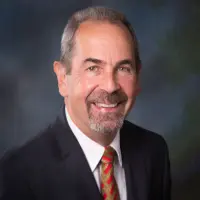
Allen Jacques is an Industry Thought Leader at Kinaxis. A veteran planning and operations leader, he has served as VP of Global Technical Operations & Biologics and External Manufacturing for Leo Pharma, VP of Network Supply Planning at Pfizer, VP of Pharma Supply Chain at FusionOps/Aera Technology, as well as holding Director level roles at Baxter and Wyeth. He holds a BS in Microbiology from the University of Maryland and did graduate studies in Biochemistry at Johns Hopkins. Connect with Allen on LinkedIn.
